#Twenty Little Poetry Projects
Explore tagged Tumblr posts
Text
Swamp Creatures

View On WordPress
#OctPoWriMo#SoCS#Writober#13 Days of Samhain#abstract photography#alligators#art#fun#Halloween#light-forming photography#NaNoWriMo prep#new poem#OctPoWriMo 2023#Quilting#Stream of Consciousness Saturday#Swamp#turtle#Twenty Little Poetry Projects#Writober 2023
2 notes
·
View notes
Text
XV: Twenty (More) Little Poetry Projects
Two years ago, during NaPoWriMo, I was introduced to Jim Simmerman’s exercise, “20 Little Poetry Projects.” (https://artofcompost.ca/2014/10/24/exercise-20-little-poetry-projects/) It is something I have returned to again and again since then. It’s a great way of shaking things up within the span of one single poem, and though I’ve never written a poem using that exercise that I consider publishable as-is, it has given me many seeds that I’ve planted and grown into other poems. So, this time around, just to shake things up even more, I’ve decided to create my own version.
Here is the intro to Jim Simmerman’s version, which I am including because I encourage you to use my version the same way:
“Give each project at least one line. You should open the poem with the first project, and close it with the last, but otherwise use the projects in whatever order you like. Do all twenty. Let different ones be in different voices. Don’t take things too seriously.”
And here are the projects:
Ask a question.
2. Include a random fact that you find interesting.
3. In this stanza, make use of punctuation. Meaning:
make use of caesura. As much as you want to,
or can.
4. Personify something which is not normally personified.
5. Use the sort of language you would find in an old comic book, an old pulp novel, or an old-timey radio drama.
6. Find an archaic slang word or phrase, and use it.
7. Write something about (your) identity. Phrase part of it as “I’m so ___ that even my ___ is/are ___.”
8. Write about lucky charms.
9. Write this part as though you’re telling a joke, or writing a stand-up comedy bit.
10. Take an iconic line from a famous film or TV show. Either include it in this section as-is, or rewrite it.
11. Make / use of / slash / marks.
12. Look through your ten most recent search engine searches. Pick the one that is most interesting, and work it into this section in some way.
13. Look at your bookshelves and choose an interesting book title, which you will then incorporate into this section or use to inspire it.
14. Write a blues.
15. Write about something you were given by an old friend (tangible or intangible).
16. Make this section an erasure of the previous one.
17. Think of something you would consider writing a manifesto about. Then write a small section of that manifesto.
18. Visit https://wikiroulette.co/. Read whatever article comes up, then work something about it into this section.
19. This section should be
a haiku that can stand on
its own three short lines.
20. Answer the question.
[download the full ebook of prompts here]
#writing prompts#poetry prompts#poetry exercises#twenty little poetry projects#napowrimo#napowrimo 2025#rust belt jessie
1 note
·
View note
Text
Professor!Nanami x Student!Reader
College AU
Jujustu Kaisen Masterlist
I | Nanami is the calm, well-dressed, no-nonsense literature professor who commands attention the moment he walks into the lecture hall. His voice is steady and rich, and his tailored suits are always perfect—never a hair out of place. You sit near the middle row, always quietly attentive, notebook full of meticulous notes.
II | Nanami notices you early in the semester—not because you speak up (you rarely do), but because of how intent your eyes are when you listen. While others drift off, your gaze never wavers, and it unsettles him in a way he doesn't quite understand.
III | You avoid eye contact when Nanami looks in your direction. Your cheeks heat up whenever he addresses the class near your side. The moment he asks, “Any thoughts?” your pen suddenly becomes the most interesting object in the world.
IV | Nanami calls on you once, gently, hoping to encourage participation. You stammer through your thoughts, face burning, but your insight is sharp and quietly brilliant. He nods with a small smile. “Excellent observation.” You don’t hear a word of the next ten minutes because your heart won’t stop pounding.
V | Nanami starts leaving encouraging comments on your papers. They’re brief but thoughtful—“Insightful interpretation.” “Strong analysis here.” It’s enough to make you carry the papers home like they’re delicate relics.
VI | You sometimes linger after class to ask questions, nervously fidgeting with your sleeves. Nanami answers with patience and clarity, his eyes never leaving yours. One day, he asks, “Have you considered pursuing writing?” You nod shyly. “I think you’d be very good at it.”
VII | Nanami is hyperaware of boundaries. He never crosses a line, never favors, never flirts. But he does start noticing little things—how you hold your coffee with both hands when you're nervous, how you blink quickly when overwhelmed. He doesn’t mean to notice. He just does.
VIII | You catch yourself doodling Nanami Kento in the margins of your notebook once. You immediately scribble over it like a crime scene. You can’t help it—he’s intelligent, composed, deeply kind. And devastatingly attractive. It’s unfair, really.
IX | One rainy day, you forget your umbrella. You’re standing at the building entrance, unsure, when a dark shadow falls beside you. Nanami holds his umbrella out. “You’ll get sick,” he says simply, offering to walk you to the bus stop. You walk in silence, barely breathing the whole way.
X | Your classmates start teasing you. “He always looks at your row first.” “I swear he only compliments your essays.” You deny it fervently, but inside, your heart dances.
XI | Nanami assigns a project with optional office hours. You build up the courage to schedule a time. His office smells like cedar and coffee. Books line the shelves, orderly and warm. You talk about your paper for ten minutes, but stay an extra twenty just… discussing poetry. You’ve never felt more seen.
XII | Nanami gives you a book at the end of the semester. It’s a vintage copy, worn but cared for. Inside the front cover, he’s written a note: For someone who sees what others miss. Keep writing. You hold it like it’s sacred.
XIII | At graduation, Nanami finds you in the crowd. His smile is rare and soft. “You’ve done well.” You whisper your thanks, unsure if you’ll ever see him again. That thought stings more than you expect.
XIV | Months later, you bump into Kento in a quiet bookstore. You’re both surprised. You laugh awkwardly. He offers to buy you coffee, “as two adults, no longer bound by rules.” You agree, heart thudding, and this time you’re able to look him in the eye.
XV | Over coffee, the conversation flows. Kento tells you he always looked forward to your essays. You tell him he made you believe you had a voice. There’s silence for a beat… then he says softly, “If I were to ask to see you again, would you find that inappropriate?”
English is not my first language, I apologize for any errors. Feel free to point them out! Also, I did not go to college in America- the schooling system where I live is very different and people here barely understand it, so nvm from other countries 💀 I tried to base it off the American system but I used series as a guide lmao. So beware of inaccuracies lol.
All Rights Reserved © 2025 DarlingBlackBook
#jujutsu nanami#nanami imagine#nanami kento#nanami kento x reader#jjk nanami#nanami x reader#nanami x you#naname kento x y/n#nanami kento angst#nanami kento x you#nanami kento fluff#jjk kento#kento x reader#kento x y/n#kento smut#jujutsu kaisen angst#jujutsu gojo#jujutsu kaisen x reader#jujutsu kaisen#jujustsu kaisen x reader
241 notes
·
View notes
Note
Maybe jj and and high school sweetheart wife
jj would definitely be the kind’ve guy that settles down early on in life & would not gaf.
you and jj would meet in your sophmore year of high school.
at first jj was a total player. he was known as the guy who got around , & only called the ‘bad boy’ because he just didn’t care about rules and smoked weed.
charming as always , though , when you and him are partnered for a random first week of school project — he’s immediately obsessed with you.
he thinks you’re the most beautiful girl he’s ever seen and he has to have you.
you make him work for it , though.
and he loves that you do.
when he finally gets to call you his girlfriend — he flips the script.
everyone’s shocked at how easy he settled down for you.
they’re even more shocked when the two of you are still together by graduation.
you guys became the most adored couple at kildare.
after high school things get a little difficult because you two are going into adulthood and try figuring things out.
you break up a couple times but it only last about a week before jj is back at your apartment apologizing even if it isn’t his fault because he knows you’re it for him.
a couple years after high school ends and you’re both entering your mid-twenties , he proposes.
it’s a super simple , romantic wedding with your closest friends and jj literally can’t stop crying.
his vows? like poetry.
he’s been working on those since junior year of highschool because he knew he’d end up marrying you.
jj would be so soft with you.
he brags to everyone he meets that two of you are high school sweethearts.
��yeah— me and my wife met back in high school and have been together ever since. crazy , right? isn’t that amazing? she’s amazing.”
“i got so lucky to have the most beautiful girl in the world.”
he thinks it’s so special the two of you grew from teenagers together to adults.
“i know her way back when she had braces and colored her hair when she cried. watched her go from my girl , to my woman. my wife.”
cries when he listens to “margaret” by lana del rey for the first time because it makes him think of you.
“that song is so fucking sick for making me feel this right now on a tuesday.”
jj makes sure to be the best partner and wants to have the family he didn’t get when he was younger.
#jj maybank x reader#jj maybank imagine#jj maybank#rafe cameron x reader#rafe cameron#outer banks imagines#outer banks#rafe cameron blurb#jj maybank fanfiction#jj maybank fluff#jj maybank headcanons#jj maybank asks#obx jj#jj obx#jj outer banks#jj x y/n#jj maybank x you
418 notes
·
View notes
Note
Hello! I know that you’ve been getting a lot of Five requests, so I hope this isn’t over doing it, but can I request Five x reader where they get to Hotel Oblivion (s3), reader gives him like, a spa day? Just because reader knows he bf went through so much to make sure they’re all safe and wanted to make sure he’s okay and well taken care of
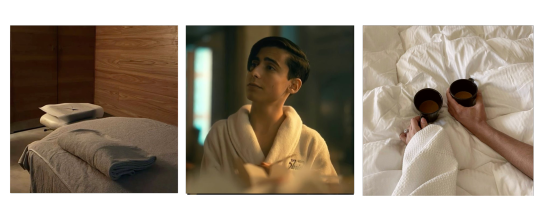
visual is for vibes only, reader’s appearance is nondescript!
pairing: five hargreeves x fem!reader
summary: self-care at the end of the world
warnings: alcohol consumption
word count: 2.6k
a/n: anon, i love you for requesting this, you’re not overdoing it at all! this was super sweet to write!! hope you all enjoy some piping fresh (and not very well proof-read) content
The end of the world as you know it is no easy pill to swallow, and for a man who had spent his entire life trying to put a stop to it, it’s even less so. Since the identification of the Kugelblitz, Five hadn’t stopped running around, searching for every solution to prevent the apocalypse. So far, he had found nothing.
Lately, he had been shorter with everyone, and you were determined to do something to help him relax. After all, he had put so much into keeping you and his siblings safe all these years, most of the time at his own expense. You wanted to find the perfect way to comfort him, and you had just the plan to do so.
That morning, you came downstairs to the lobby, bright and early. Despite this fact, Five was already up and ready - perched at the bar with a cup of coffee.
You approached him with a warm smile on your face, “Good morning!”
He looked up, and his face softened almost immediately, “Good morning to you too.”
Just before you hopped onto the stool beside him, he tugged it closer to his own. He looked you up and down with an amused smile, “You look extremely chipper this morning.”
“That’s because I am.” You smiled proudly as you placed a keycard on the table.
He raised an eyebrow, sceptically, examining the keycard, “417? What exactly is this for?”
“For a room here.” You continued and he smirked slightly.
“Love, you do realise that we already have a room here? One that we’ve been sleeping in for the last four days?” He said, gently tapping the corner of the keycard on the table to justify his point.
“No, well, yeah, but this room is different. It’s the spa.” You said, eyes flickering up to meet his nervously. You couldn’t help but fear that he would think you an idiot for even suggesting it.
“I suppose, one day of relaxation couldn’t hurt.” Five mused, sitting up. He looked down at you, noticing how increasingly excited you grew as he spoke.
He sighed, smiling to himself, “Alright, I’m in. Should be a nice break for the two of us.” He said, leaning down to peck your cheek.
You grinned excitedly, biting your lip, “Okay, you keep that.” You said, pointing at the keycard still grasped between Five’s fingers, “I’m going to go set everything up, so, come up in like… twenty minutes?”
He watched as you got down, hurrying away hastily to prepare. He nodded, chuckling, “Alright, twenty minutes. Got it.”
**************************************************
Twenty minutes later, the door to the spa opened, and Five found you standing, looking like a proud child beside their science fair project, in the totally transformed room.
You had decorated it with sprinkles of confetti and tiny, heart-shaped specks of glitter. It looked like something out of a rom-com, but since you were the one who put it together, Five couldn’t care less how cliche it was.
The wooden table beside you had a red tablecloth placed over it, and on top of that, a wooden tray with two porcelain mugs, a teapot, two champagne flutes, a rather expensive-looking bottle of champagne, and a little note.
Five was almost sure that you had written some sweet notion on it.
Or, better yet, perhaps it was a quote from the latest book you had been reading. He had been the one to recommend it to you, of course. It was a collection of translated French poetry. Some might say pretentious, he said romantic.
Peering into the neighbouring rooms, Five could see the equipment you had carefully prepared for the day’s spa treatments. He knew you must have put a lot of thought into what would be on your itinerary.
As he took everything in the room in, his heart swelled with affection for you. For his entire life, he had tried so hard to make sure that everyone was cared for all the time, especially you, and seeing you put in all this effort just for him had him feeling more grateful than ever that he had you by his side.
“Thank you,” he said gently as he took your hands into his, fingers tracing over your knuckles.
“You’re welcome.” You beamed up at him. He brushed your hair away from the side of your face to cup it with one hand. He pressed a delicate kiss to your lips, and as he slipped his hand down, reaching for your hip, he instead met cloth.
He pulled back, raising an eyebrow, and then glanced down at the bathrobe in your hands that you were holding up to him, like an offering, as you grinned, “Here, you have to have the whole spa treatment.”
“Oh? The whole spa treatment, huh? Okay.” He chuckled fondly, taking the robe from you, “And will you be joining me in wearing this get-up?” He asked with a sly smile as he began to get changed into the robe.
“Of course.” You hummed, sliding your shirt off and slipping into a robe of your own. When Five turned back around, the two of you were matching in your fluffy white gowns. The sight of you was, certainly, a pleasant one.
“What’s first on the agenda then, oh, wife of mine?” Five smiled, hands slipping around your waist.
“Mm…” You paused, thinking about it, your mind a little hazy under his touch. Your gaze drifted back to the table, “Drinks.” You said decisively, making your way to them.
“What do we have here then?” He didn’t truly need to ask; you had told him more times than he could count about the herbal tea they served at your local spa, but he loved listening to you talk, so he asked anyway.
“This is that herbal tea I was telling you about! I didn’t think that I would be able to find any, but they had a bunch of it stocked up in the back room!” You gushed.
“Well, isn’t that just perfect?” Five smiled, pecking your lips again as he slung an arm around your shoulder, “And the champagne?”
“I don’t know, it just felt like a spa-y drink.” You laughed softly, and he chuckled, pulling you closer.
“I see….” He smirked fondly, pecking your cheek. You rolled your eyes, smiling.
“You know what I mean, though, don’t you?” You asked him, noticing his condescending tone.
He nodded, smiling, “I do.”
You nodded approvingly and poured a glass for each of you. You slipped a flute into his hand.
Five took a sip of his champagne, savouring the taste. Then, he looked down at you, mischief swirling in his eyes, “There is something I have to ask about.” He took another sip, “In terms of spa treatments, that is.”
You hummed as you sipped your own drink, tilting your head to the side. His thumb rubbed your shoulder, voice lowering an octave as he leaned closer, “The sauna. Is that set up, or…?”
You nodded, smiling shyly as you leaned into him, “It is set up. No spa day is complete without the sauna.”
“Of course not.” He smiled, kissing your jaw gently. He stood up slightly and adjusted his robe, “Shall we?”
“We shall.” You nodded, walking beside him into the room. He closed the door behind you, and the warm steam encompassed you instantly. You hummed pleasantly and slipped off your bathrobe; Five did the same.
You took one of the towels and slipped it over your body, sitting down. Five watched you do so and soon joined you.
You closed your eyes and felt the heat begin to seep into your muscles, melting away the tension and stress. You could only hope that it was doing the same for Five.
He sat down next to you, his thigh brushing against yours. He stretched his arms above his head, sighing deeply. "This is exactly what I needed," he muttered, closing his own eyes.
You hummed in agreement, leaning your head back against the wall. "It's nice, right? Relaxing?”
Five opened his eyes and glanced at you, a small smile playing on his lips.
"It is," he murmured, his gaze roaming over your figure, covered only by the towel. He slipped his hand into yours.
The two of you sat in comfortable silence for a while. You stole a glance at Five, his skin glistening with sweat, chest rising and falling with steady breaths.
He caught you looking, and a small smirk tugged at his lips, “Enjoying the view?"
You rolled your eyes, feeling a flush creeping up your cheeks. "Just enjoying the moment," you replied nonchalantly.
He chuckled, sarcasm creeping into his voice, "Of course," his voice became softer, "Completely innocent enjoyment."
“Mhm.” You nodded, leaning your head on his shoulder. Five put his arm around you, pulling you closer to him. His hand began to rub soothing circles on your back.
His touch sparked an idea in your mind, and you sat up straighter. You pushed his hands away and smiled at him, “Turn around.”
“What exactly do you plan on doing back there, love?” He asked, with a grin, as he turned.
You watched the ripple in the muscles of his back, strained. You reached up, hands gliding over his skin comfortingly.
“…’m going to give you a massage.” You simpered, pressing your hands deeper into his back. Five groaned appreciatively, practically melting under your touch.
“Lean forward a bit for me.” You gently tapped his back and he obliged instantaneously, with a soft groan.
You saw the tension in his shoulders lessen as your hands dug into the tight muscles, finding the right pressure to soothe the knots.
"You're really tight right here," you murmured, your hands pressing more forcefully into his back.
He inhaled sharply as his shoulders released their tension, “Yeah, well, that comes with trying to stop the apocalypse for two weeks straight,” he grumbled.
You pressed a gentle kiss to the centre of his back, “You shouldn’t push yourself so much,” you chided gently, continuing to work out the knots in his back.
Five let out a sound somewhere between a grunt and a sigh. “Easier said than done, love. There is always something that requires me to push myself with this family.”
“I know.” You soothed softly, moving your hands to a particularly tense muscle near his shoulder blades. “I still wish you would, at least, try to take better care of yourself, though.”
He hummed noncommittally, lost in the sensation of your delicate touches, “I take care of myself just fine…” he muttered, relaxing further under your touch.
“Five.” You said pointedly, pressing down on his back. He hissed.
“Fine, fine… maybe I don’t always take the best care of myself…” He admitted under his breath. His head lolled back with another sigh of pleasure at your touch.
You pecked his shoulder gently. You sat forward and your hands slipped away from his aching muscles and around him in a hug from behind, “You need to be more careful with yourself.”
“The fate of the world shouldn’t be resting on your shoulders.”
Five looked at you over his shoulder, eyes softening. He turned around and pulled you close, his forehead coming to rest against yours in a self-soothing gesture. He was quiet for a moment, contemplating your words.
He knew that you were right, but it was hard to accept that this shouldn’t have been the way things were when it’s how they’d been for as long as he could remember.
He sighed again, his breath warm against your cheek. “It feels like it’s been my responsibility for so long that I don’t know how to let it go.”
You held him closer, wrapping your arms around him affectionately. You pressed another gentle kiss to his shoulder.
“I’m not asking you to let it go, Five.” You murmured quietly, shaking your head. “I’m asking you to let yourself share that burden. You can suffer but you don’t have to do it alone.”
"I’ll try,” he said quietly, his voice barely above a whisper. “I can’t promise it will be easy, but I'll try.” He leaned in, resting his forehead against yours.
“Trying is all I could ever ask for.” You smiled gently, pecking his lips and cradling his face between your hands. Your eyes searched his and suddenly you were all too aware of how long you’d been in the sauna.
Five closed his eyes briefly, relishing the feel of your hands caressing his face.
The steam had made his skin glistening and warm and you could feel the heat in his cheeks, “We should probably get out… we’ve been in here for quite a while.”
Five nodded, smiling to himself, “Good call.” He said, gently helping you up with a pat to your hip.
You gathered your things and stepped out of the sauna. You glanced back over at Five as he pushed his hair out of his eyes, “We can always go in the pool, cool off for a bit.”
Five looked over at you, his eyes still soft from your comfort. He nodded at your suggestion, a small smirk playing on his lips. “Lead the way, love.”
You padded softly across the room and to the pool. You placed everything at its side and eagerly stepped in, becoming embraced by cool, crystal water.
The contrast from the sweltering confinement of the sauna to the pool made you sigh pleasurably.
Five followed shortly after you, wading into the pool with you, the water lapping softly at his chest. He let out a sigh of relief as the water soothed his skin.
“You were right,” he noted as he swam closer to you. “This was definitely the right call.”
“Nice and cool.” You nodded in agreement, swimming over to his side.
“Mm…” Five pulled you closer to his side, wrapping an arm around your waist so that his chest was flush with yours.
He leaned down, his lips finding their way to your neck and placing a few stray kisses there. You leaned into his touch, gratefully, feeling your body grow sleepy under his affections.
His arm around your waist tightened, as he pulled you even closer to him. His voice was low as he spoke, "You look so relaxed, love," he purred, his fingers tracing lazy patterns up and down your back.
“Well, that is the point of going to a spa.” You hummed with a smirk. Five held you against him, leaning his back against the wall of the pool behind him.
Five chuckled, relishing the feeling of your warmth against him, and the cool water now enveloping you both, "Indeed it is..." he agreed, "And it seems to have worked on the both of us."
“Good. I’m glad.” You smiled fondly, pecking his lips twice over.
He returned your smile, his lips finding yours again… and again. Each kiss was more eager than the last. He tightened his hold on you, his arms wrapping around your waist and pulling you flush against him.
You felt your cheeks going warm as you clutched his shoulder for support.
A thundering crash sounded from the corridor. Five pulled back, immediately wary. He squinted at the doorway.
It was silent for a few moments, when the door flew open and Luther stumbled in, out of breath from his haste.
“Jesus! Luther!” Five cursed, turning you around and shielding you from view with his body. Your hands wrapped tighter around him in embarrassment.
“Woah… uh… sorry. Family meeting. It’s important so… you know… if you could both meet us in the bar as quickly as possible...” Luther said, casting a cautious glance between the two of you, cuddled up in the pool.
“Yeah, alright, amazing, thank you, Luther.” Five said, sounding entirely unamused.
When Luther made no attempt to leave, Five raised an expectant eyebrow at him, "Do you mind?" he said.
"Oh! Right, sorry, yeah." Luther smiled awkwardly, excusing himself and walking out of the room. Once his footsteps receded, Five groaned.
"Can't I get one fucking day off?" he sighed, head dropping against your shoulder.
254 notes
·
View notes
Text
His Lordship Araw
What's up folks, I submitted some of my weird Filipino-American poetry to a press a few months ago, but I haven't heard back from them and I don't know if the project is even underway yet, so I guess I didn't make the cut? This is part of a very loose "series" called "Elegies to the Anito" where my fictional self has "conversations" with the Tagalog spirits who like, hang out and get mad about colonization with me, but you don't need to read all twenty poems or anything. This is ultimately just my decolonization feelings.
In these times of climate change, I often wonder what exactly our sun-spirit is doing, and how he relates to "places that are suddenly burning while other places are suddenly freezing." The Sun was an oppressive chief/king who almost burned the world to a crisp, because tropical heat does NOT mess around.
He is often called a sun-GOD by modern folks, but like... he's just The Sun in the really old bare-bones mythology, that barely takes up more than a couple paragraphs. As noted in the poem, I literally just call him "Araw" because my modern human brain needs something to CALL HIM.
--
His Lordship Araw
There are those who say That Apolaki is the Tagalog sun-god; The brother of Mayari, the half-blinded moon-goddess, And son or relative of Bathala. Apolaki is said to rebuke our ancestors For submitting to foreigners with white teeth And giving up our ancestors’ gods.
But As far as I’ve heard He is a younger (and post-colonial) god. Although the worship of him is not wrong, Only new.
The only story I’ve heard of a precolonial Sun Is a chief or king of the skies And in some places, the whole of the islands.
The Sun in those stories was ill-tempered And brutal Forcing mortals to crawl before him. He tried to burn the world Or bring down the skies And sometimes both. That is when Bathala Maykapal gouged out his eye, Winning the world and the duel-- And the Sun promised not to burn everything down.
I do not know what to call the unnamed sun but Araw. In my mind, and my childhood memories of Philippine heat, This harsh master Who knocks everyone down Seems closer to how the tropical sun feels than Apolaki. A sun-spirit-- Hot-blooded, heavy-handed. Compared to a sun-god-- Tempered, and noble, and well-spoken.
But We need the sun to live, too. And I wonder if there were stories after Araw was dethroned. How did he cope after losing his eye? Did people learn to trust him after his defeat?
One hot day (at least this close to San Francisco), Araw barges in again. Without Bathala around, I flinch. I have seen Araw before--tall, dark-skinned, handsome-- But all the little details intimidate me. His build is a fighter’s: Muscled but loose-limbed, and shockingly fast. His fine robes are the scarlet of blood, that only kings and fighters were allowed to wear. His curls are tied back, with his unhidden eye patch seeming starker than a bare socket. And no jewelry adorns his battered skin, though the old kings were covered in gold.
“Be not afraid,” he tells me. “I will not harm you. I have only heard you thinking of me.”
So I try not to, Though his own heat leaves smoke trails about him. “Araw,” I ask him, “I know you don’t like the Filipino flag, But what do you think of Apolaki? Should I ask him for help, or you?”
“I told you that I care not for drawings that have nothing to do with me,” he frowns. “Nor do I care which gods you worship or forget. For I am no god, but the Sun. I am here whether you like it or not-- And your ancestors did not like me.”
It is not a warning or a threat, more of a shrug.
But I think of how cold I am here So far from Luzon. People feel my freezing hands and worry that I’m anemic. I feel better in summer, but never warm enough.
Haik, my people’s sea-god, Is warm as a mortal man is And he curls up at night as a mortal man does Though it’s never warm enough At least not when he leaves.
“Have so few people talked to you of the spirits?” Araw wonders, and then laughs. “Of course. You blunder from group to group, and you make people uncomfortable. Like I do.”
And part of me is ashamed For Araw to see All the “crazy or not” parts of my spiritual wanderings.
But he also said, I am like him. And I am always trying to find Someone--anyone-- Who knows what the hell is happening.
“I don’t know if I can help you with that,” Araw says. “But I have seen many things, and made many mistakes. Perhaps I can help you avoid them.”
Araw is not like Bathala--so much older, so casual. Nor is he gentle and sad, like Haik. But the heat of the sun beats down on me Makes the air stumble and fall around him
And now I am finally Warm.
9 notes
·
View notes
Text
A Study in Emerald - Chapter 2
2nd chapter up! A deep look at Martin Blackwood, unsurprisingly his brain is not a great place to be.
AO3 Tags:
Character Study, Canon Compliant, Martin Blackwood Has a Crush on Jonathan "Jon" Sims | The Archivist, Martin Blackwood Needs a Hug, Jonathan "Jon" Sims | The Archivist Needs a Hug, Not really a plot here, Internalized Fatphobia, Internalized Acephobia (kinda), Self-Esteem Issues, Self-Worth Issues, Everyone is doing bad
Check it out and maybe give it a kudo or leave a comment, even an emoji would be delightful, I need applause to live.
https://archiveofourown.org/works/61894225/chapters/158428984
Martin Blackwood spent most of his life trying to take up as little space as possible. He felt most comfortable when he was invisible in the corner of the room, which was quite a feat at 6ft 1in with broad shoulders and a round figure. He was the tallest person working in the archives, much to Tim’s 5ft 11 annoyance, and he practically towered over Jon at 5ft 8in. He had been “too big” since he was a teenager, and even though he was deceptively strong, it wasn’t in the useful sporty way. No, Martin was too soft. His large upper arms made button down shirts uncomfortable unless he went up a size, and his trousers often got holes in the thighs from friction. On top of that, his bulk in the crowded and narrow basement meant he was always pressing past a stack of files desperately hoping the sleeve of his jumper or the curve of his ass wouldn’t topple something to the floor. He had seen exasperated looks when that happened, and it happened a lot. He had even heard a whispered invective from the highly critical Head Archivist a couple times. Those cut especially deep since he wanted nothing more than to be good at this job. Or least good enough to not stand out as a disappointment. It wasn’t just his body that was soft, his mother had spent decades telling him he was too emotional, too prone to fits of crying. That liking poetry and small animals and quiet walks were what made him soft and gay and useless. And those words followed him every time he bumped into something, or ate a sweet, or worried that he might break a delicate chair.
Martin spent a lot of time trying to forget his appearance. The best days were when he was so caught up in a research project that he could forget he had a body at all, and just exist as a floating consciousness in the archives, helpful and unobtrusive. When he was forced to look in the mirror he hated his round boyish face. Popular media insisted that a smattering of freckles over your cheeks and nose were supposed to be cute, but Martin had a hard time distinguishing them from faded teenage acne scars, so all he could see was mess. He’d tried growing a beard to hide his imperfect skin and soft chin, but it came in patchy and uneven and sprawled more down his neck than up his full cheeks where he wanted it. No, he was stuck with the clean-shaven, cherubic, peaches and cream complexion that made him look even younger than his twenty nine years. Thirty-three according to his embellished resume, of course.
His sandy-colored hair didn’t help him look any older either. When he was a child, his hair had fallen in angelic gold curls that somehow annoyed his mother, since she had him crop it short. Now as an adult, it fell in soft fluffy waves that he kept above his ears, though when it got long the ends still started to curl. The bright gold had also faded to an unremarkable muddy mix between dirty blonde and mousy brown. He had continued to list it as “blonde” on dating apps until he got enough annoyed or disappointed reactions in person. Apparently his blonde wasn’t blonde enough, and his eyes were too grey to be called blue, and of course “You seem heavier than your pictures, no offense”. God, Martin hated the Grindr scene.
It’s not that he never dated, the relationships just didn’t last long. He had learned through rejections after rejection that he was good for a hookup and not much else. The encounters left him feeling a little used, and often unsatisfied, but just having the touch of another person staved off the dark places his mind brought him. It also gave him a break from fantasizing about his boss and the really terrible crush he’d been nursing for a couple years now.
He’d always had a thing for the lanky bookish types, the hot professor aesthetic really did it for him. Even better when that professor was strict and withholding. Something about it made Martin want to beg for approval. It was the difference between a dog's affection that’s handed out freely to anyone in the room, and winning over the judgemental cat in the corner. Martin dreamed of being chosen, being examined and found worthy. Or maybe it was just latent daddy issues stemming from his father’s abandonment at age 8. Either way, Jonathan Sims hit every one of those buttons. It had been just an attraction until the worm attacks. When Jon went out of his way to protect Martin, and when they started spending time together late at night when Jon worked late and Martin was sleeping in document storage, that attraction had blossomed into a full blown infatuation.
Even though Martin’s favorite tea was Yorkshire Gold, Jon drank Hampstead Earl Grey, so switching over gave Martin an excuse to drop a cup on Jon’s desk whenever he refreshed his own. Martin had even spent a fruitless two weeks researching youtube tutorials on making an authentic chai blend, until he convinced himself Jon would find that presumptuous and accuse him of being racist.
Martin spent a lot of his time divining ways his coworkers could hate him. Years of practice had taught him that the best way to avoid getting yelled at was to anticipate every possible need and either meet them or get out of the way. He learned that lesson young. The marks of a troubled childhood were easy to spot on him. He was quick with stammering apologies, flinched at slammed doors and raised voices, and spent valuable time double and triple checking his work anxiously. He could see those very qualities getting under people’s skin, but seemed to be unable to stop.
The only place he could relax was his cramped flat in Stockwell. Most of the furniture was thrifted, the gaming console was two generations old at this point, and the landlord hadn’t fixed the leaky sink or cracked floorboard since Martin moved in - but it was his. The paycheck from the Magnus Institute was the best he’d ever had, but it took a lot to keep his mother in her care home in Devon. He had been living with her out of financial necessity after dropping out of school to become her carer, but about a year before he’d been hired at the institute she’d decided to put herself in a home far enough away that Martin couldn’t visit regularly. Now she barely answered his calls, and sometimes pretended to be asleep or sick to avoid seeing him when he did get down to visit.
His financial struggles were easy to see on him. His slacks and jumpers were often secondhand, and Martin had learned to sew and patch things to get as much use out of them as possible. It also meant his clothes were often ill-fitting since plus size shopping at thrift stores was damn near impossible. He always brought his lunch, and on days when he was too rushed or his bread had gone moldy, he would make up a reason he couldn’t go out with Tim or Basira. The unhelpful voice in his head usually said You can stand to miss a few meals anyway, but he had learned not to say that part out loud. On a few dire occasions, Martin had accepted a Grindr date he knew would end poorly just because the guy would buy him dinner first.
Sasha had caught him walking with a slight limp one Monday morning after just such an occasion and had cornered him about it. At first she was convinced Martin had a secret boyfriend and wanted details. Then she’d given a mild talking to about being safe when he’d admitted to making poor hookup choices. He couldn’t remember now if that had been Sasha or NotSasha. It was strange to think the monster would have cared if Martin was ok, but maybe it just wanted him to stay in the Archives more.
And for the most part he did. Especially now that Jon was away more, and Tim was angry and distant, and Basira and Melanie seemed to be trapped here against their will, Martin felt like he was holding down the fort. He just wanted to avoid a fight, but it felt like the entire team was slowly boiling. He just needed to make enough tea and keep things organized and he could prevent someone from taking their anger out on him.
If he could just be good enough. If he could just be good enough. If he could just be good. Then they could prevent the apocalypse. Then Jon would be safe. Then Tim would be safe. Then Jon would love him back. Then he could be worthy of someone loving him back. He could be worthy.
#tma#the magnus archives#tma fanfic#martin blackwood#Martin shocker I have self esteem issues Blackwood#internalized fatphobia#internalized homophobia but it's really quick#ao3 link#shewhich stuff
13 notes
·
View notes
Note
Hiii, I’m here for the matchmaking event!🤍
My name is Sherilyn👩🏽🦰, and I go by she/her. I’m in my early twenties and very much a feminine woman.
I love writing and reading poetry, especially classic literature. I’m obsessed with all kinds of art — photography, filmmaking, sculpture, painting, architecture — literally anything expressive, I’m into it.
I’m an introverted extrovert. Like, I’m pretty quiet… but also just freaking loud sometimes. I don’t know how to explain it — I’m a bit of both. I talk a lot, and I can hold a conversation with just about anyone. I’m super curious about everything from K-pop and music to politics and academics.
Personality-wise, I’d say I’m kind, easygoing, and generally pretty positive. I like making people feel comfortable. But I definitely overthink sometimes, and that can get in the way — I’m working on it.
I love all genres of music, and I love traveling and learning about different cultures. I’m fluent in English, French, and Slovak.
I’m a PPE major (Psychology, Politics, and Philosophy), and in the future, I just want to help people — however I can.
I’m a really understanding person, especially when it comes to arguments or tension, but that’s probably because I’m a people pleaser.
Okay, so a red flag: I smoke (only slim cigs, chill). I know a lot of people think it’s gross, but it helps me, and honestly, I don’t really care what others think.
My style is chic and elegant. I love dresses, baggy tailored trousers, and fitted shirts. My favorite color is dark red or like a deep gray. I’m 5’6” with an hourglass-ish figure — not super defined hip dips, thunder thighs, a little tummy, and a great pair of double Ds (just being real). I have long curly ginger hair 👩🏽🦰. I’m not really eastern slavic looking but I’m veryyyyy eastern slavic girl.
My love languages are physical touch and words of affirmation — both giving and receiving.
My ideal date is going to an art gallery, then having a good meal and a glass of red wine.
My ideal partner is someone who really gets me — because I’m definitely a bit complicated — and shares similar interests. Bonus points if you love music and old movies.
My biggest pet peeve? When someone doesn’t respect anyone but themselves.
I like both SFW and NSFW. I’m kind of a mix between sub and dom. I’m not super kinky — like blindfolds and all that — but I do have a size difference kink and a praise kink.
Thank youuuuuu for doing something like this🫶🫶!!
you’re soo talented btw. 💋
for sherilyn <3
i match you with...
choi seunghyun
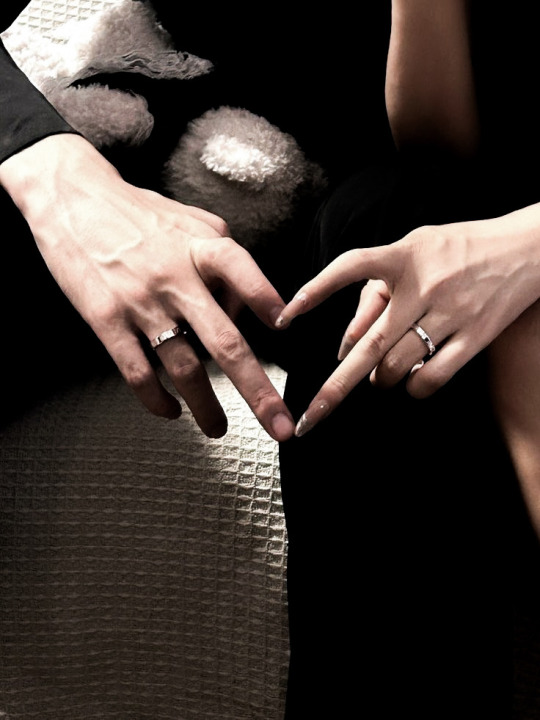


seunghyun was entranced by you when he first saw you at an art gallery of all places
you were something right out of one of his dreams--wearing a simple yet elegant outfit--a dark red dress paired with matching dark red heels that accentuated your figure.
he saw the way you really took the time to observe each art piece in its entirety just like he did
and that's how he ended asking for your number that same day
the two of you began to bond even more over art and sharing your guy's similar views
like you, he finds art museum dates to be the most romantic and intimate type of date
and of course, he loves having several glasses of wine afterwards
he enjoys your company and just wants to focus on you and not mobs of paparazzi or over the top fans
if the press tries messing with either one of you, he’ll make sure they don’t get the chance to
both of you smoke together when stressed
he loves how you listen to all types of music because he also listens to different genres as well
seunghyun will take every chance he gets to learn about your culture so he can understand you better
he also loves it when you break out tiny fragments of different languages
seunghyun helps you out when you have no inspiration for your art projects and offers to help you come up with intriguing concepts
he'll even joke about being your muse which earns a hearty laugh from you
seunghyun loves how bubbly and energetic you are
he also admires how how carry yourself and how confident you are
the two of you definitely match each other's energy in the best way possible
when the two of you are at home, you watch a lot of old movies on the couch together while cuddling
cuddling wasn't exactly seunghyun's thing at first, but now that man clings onto you like a koala sometimes (not that you're complaining)
his love language is gift giving, so you best believe he'll spoil you even if you refuse his gift at first
if either one of you are having a bad day, the other knows how to make the other feel better whether it's with a simple hug and kiss or just letting the other know how much they are loved, even if the other doesn't respond
he hates it when someone upsets you and he even might tell them off because no one disrespects his girl like that!!
nsfw!!
seunghyun is a gentleman and all but you make it so hard for him to be one sometimes
when you wear lowcut tops around him, he is definitely eyefucking you but he'll deny this at all costs!
he gets so hard when you bend over and he can see your cleavage practically spilling out of your very tight and revealing shirt
and your thighs? a dream come true.
seunghyun is a thighs and tits man idc what yall say
he will praise your body every chance he gets even when he's more submissive in the bedroom
he will start SUCKING away at your tits like it's his last meal
with that being said, he adores leaving hickeys all over your chest
seunghyun is also the #1 fan of fucking your thighs especially when he's the needy one after a long day
however, when you're the sub, he'll make sure you know who's in control
seunghyun uses your size kink to his advantage since he has one as well!
he loves watching the way you squirm beneath him especially since he knows how much you get off to the thought of him manhandling you
if you tease him to the point where he can't take it anymore, he'll practically POUNCE on you and make sure you haven't forgotten how to be a good girl for him
he loves watching you bounce up and down on his dick
he takes in the way your body reacts to him and his thrusts
especially your tits
THIS MAN IS A CERTIFIED MUNCH I TELL YOU.
he would not be mad at all if your thighs suffocated him to the point of death
he LOVES your tummy and is constantly kissing it and fondling it during sex
he doesn't know what it is that gets him so riled up
if you make a negative remark about your body, specifically your stomach, he will do one of two things--either pound into you from behind while in front of a mirror and praises the shit out of you OR he'll make sweet, sweet love to you while in missionary
either way, he'll place his hand on your stomach when he's deep enough inside you to see the bulge in your tummy <3
seunghyun suggested making a little personal art project that involved the two of you covered in paint on a life-sized canvas
he is the king of aftercare
seunghyun loves taking care of you no matter if you guys made love or had passionate sex
he'll make sure to get you water, a wet cloth, and anything else you may need
peppers you with soft kisses as the two of you cuddle <3
#choi seunghyun#choi seunghyun smut#choi seunghyun fluff#t.o.p x reader#t.o.p fanfic#t.o.p bigbang#t.o.p#bigbang
12 notes
·
View notes
Text

My ramblings below the cut.
(If the drawing of Tilly, Cordelia, Roland, and Cedric bears resemblance to the cover of The Outsiders Broadway album ... I take no personal responsibility for how many times I've listened to it. It's just so good.)
The concept for this came off of a few different ideas that have bounced like ping pong balls around my head lately.
First was a post floating around about Baileywick and Cedric that has this screen still of Cedric where he's is creeping up behind Baileywick like my toddler does right before they pounce on me to ask for pony rides.
Anyhow, Cedric's posture in that post made me remember that Baileywick was easily about late twenties, early to mid-thirties around the time of The Incident. Meaning, Baileywick is a well established member of that adult generations' "safe adult" group prior to The Incident. (I very much see Baileywick as the person Cedric, Tilly, Roland, and Cordelia went to when their mothers weren't around for comfort. I also see him as the person they went to to hide their mistakes and messes from their fathers.)
Second, I just finished writing a story set after "In Cedric We Trust" and the story opens with Baileywick's perspective. The backstory I set for Baileywick had him and Nigel both really involved in the politics and life of the castle. But, it also put him deeply at the mercy of Roland I and Goodwyn's style of thinking. This leads to my next point.
Finally, I've also been quilting some pieces for "In the Flares of the Sun," and writing a few scenes between Baileywick and Cedric, or ones where they're heavily involved with each other even if neither of them is narrating, and I've found it really interesting to think about how Baileywick breaks down, not only his thoughts and notions about Cedric over time, but also how Baileywick gets time to reflect on these moments that he shared with this past generation.
I wanted Baileywick to have time to think about the things he misses from his being the "go to" person for the four of these, then children, now adults. I wanted him to have time to think about his own role in the mess that ended up happening. (And, it gets *messy.*) I wanted him to have time to think about his biases, his struggles, his career, and his mistakes. But, I also wanted him to be able to find forgiveness and peace, eventually.
Thus, this little doodle popped into my head
That said, I’m not sure how well practiced I am at drawing anymore, but I used to be an IB Art student back with the dinosaurs when I was in high school many, many moons ago.
My gimmick project was basically writing my own original poetry into cartoons/children's book style illustration either through artistic matting or by weaving it into composition. (There was a lot more to it than that, but that was the basics.)
Sadly, I don’t even own a functional scanner anymore. I tried to get zoomed in shots of the individual panels, but they refused to turn out without getting shadows of my phone and fingers in the way of the shots. (Hopefully, everything is still legible without the individual panel shots.)
I truly haven’t tried doing this type of composition in … almost twelve years? But, as this is my “week of throwbacks,” since I will be turning thirty next week. I gave myself some doodle time for pleasure since, as a parent of a toddler, I rarely get time to draw anymore and I (secretly, not so secretly) still love doing it. I rarely draw in black and white, but this was fun. I will definitely do it again.
I did my very best with the characters. Most of the time now, I just draw clothes because I sketch fashion designs for the characters in my novels so I know what they're wearing and how it would move in space when they're doing stuff. And, I hardly ever draw kids. So, that was an adventure for me.
Also, I have always struggled to draw hands. I lost patience towards the end, and since this was meant to be for pleasure, I just sort of gave up on Sofia's hand.
This got long. Anyway. Enjoy the art. Maybe, next year, I'll make another doodle because it will honestly probably take me that long to draw again.
#baileywick#cedric the sorcerer#cordelia the conjuror#king roland ii#aunt tilly#pip draws things#sofia the first#sofia the fandom#princess sofia#princess amber#prince james#fan art#proship dni#just covering my bases because i don't see how that could even happen on this post#but i trust nothing and no one#pip does life
16 notes
·
View notes
Text

WRITEBLR REINTRO – ANN LILLY JOSE
hello there!
following through with my tradition of posting a new writeblr intro every single year, here we go – a brand new reintro where i talk a little bit about myself and my current writing projects. so, here we go, onto all that good stuff!
about me
i'm ann, a twenty-year-old writer from kerala, currently based in kochi
i live with my husband, who is a musician, and lead a very creative life of sorts
i'm an infp, enneagram type 2
i write literary fiction and poetry
i'm a discovery writer and have a thing for sad stories with traumatised characters
i work as a content writer and social media manager for a wedding company
you can find all my published work on my linktree
my aesthetics: wilted flowers, fallen leaves, silhouettes, shadows, gentle friendships, indie music, unplanned trips, birds, fireflies, annotated books, old libraries and buildings, post-colonial literature, voids, romance
my wips
i recently finished a litfic novel called dairy whiskey and am editing it right now, hoping to get it ready for agent submissions in a month or two. i put my heart and soul and blood and bones into it, so if you’d like to dive into the story and read a few excerpts, you can check out the intro here and every other excerpt here!

rock salt is my main wip since finishing dairy whiskey. it is the story of identical twins rain and norah as they move out for college and navigate their lives on their own, which ends up in them growing apart. if you like complicated sibling relationships and the struggles of growing up, you’ll love this book!
i so badly want to start writing it, but i don’t think i’ll be able to until dairy whiskey is in a more secure position. so, there probably won’t be any updates for a few months, but you can read the wip intro here.
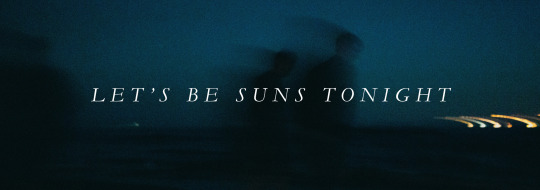
this is a gay vignette novel that i started writing back in 2021 as a source of personal joy. this is the story of how a singer-songwriter desperate for normalcy meets a boy with a heart heavy with guilt. this is the story of how they fall in love and it’s honestly quite wholesome <3
i haven’t worked on this book in so long and i’ve been trying to sneak some words in, but it feels like the book needs a fresh start. i don’t know, i just might start it all over again. but until then, here’s an outdated wip intro.
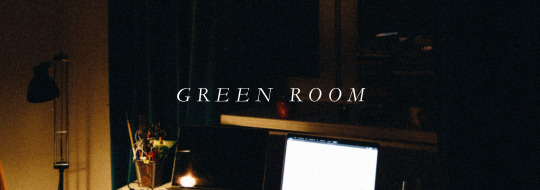
green room is a literary/experimental memoir documenting my teenage years as a writer. it is a deep dive into craft and how it affects life, particularly how it moulds you as a person. i haven’t started drafting this yet, but here’s a wip intro for now.
so, that’s about it!
if you’d like to be pinged when i drop a new publication or a wip update, just send me an ask to be added to my general taglist and i’ll tag you in those posts.
thank you so much for reading. i hope writing has been going well for you. if not, here’s some strength, some kindness, and some caffeine to keep going!
– love, ann.
general taglist (ask to be added or removed)
@shaonsim @heartfullkings @vnsmiles @dallonwrites @wannabeauthorclive @sienna-writes @violetpeso @flip-phones @silassghost @ambidextrousarcher @zoe-louvre @writing-with-l @magic-is-something-we-create @femmeniism @frozenstillicide @wizardfromthesea @rose-bookblood @coffeeandcalligraphy @rodentwrites @saltwaterbells @snehithiye @at-thezenith @subtlefires
#writeblr reintro#writeblr reintroduction#writeblr intro#writeblr#writer on Tumblr#literary fiction writer#my wips#my writing projects#navigation page#aljwrites
66 notes
·
View notes
Text
Lucky Girl
Part Two Summary
We skip forward to 2011, as Evie and Claire are completing their final exams at school. Evie reflects on the year just gone, which was difficult after her heartbreak. She reveals that she and Jude emailed for a while, but eventually he stopped replying to her, and moved on with his life. She obsesses with Claire over his life in Berlin, and his beautiful Danish girlfriend, Astrid. Eventually, once it is time to go to college, Evie knows it is time to put the story behind her and move on, though she still carries the hurt with her.
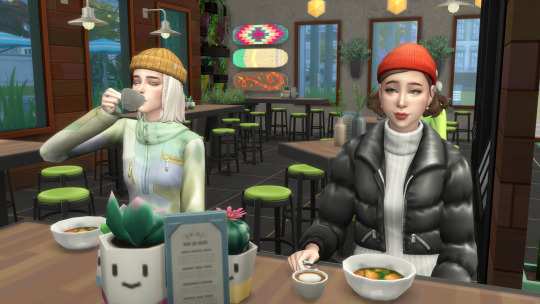
Evie moves to Dublin to attend art college in September. She and Claire move into an apartment in the centre of town, owned by Claire’s father. At college, Evie becomes fast friends with an eccentric blonde called Marnie, who’s into slam poetry, performative feminism and dating gawky academics. Evie doesn’t have an instant connection or a great lot of faith in Marnie, but she finds her interesting, and unlike the people she knows back home in Tullamore, her dull hometown in the centre of Ireland. She is determined to be a different person in Dublin.
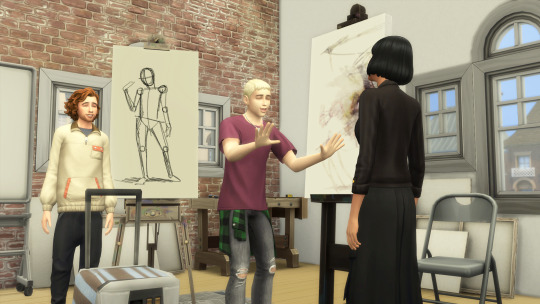
Evie gets along fine in college, but is a little surprised to find that she isn’t the natural talent she thought she was. She is used to being the best at art amongst her peers and being surrounded by equally capable artists has challenged her confidence in her abilities. She projects a lot of her insecurity onto Dean, a twenty-three-year-old student in her life drawing class who makes a pointed effort to find fault in her work. He infuriates her, but others ensure her he’s not actually out to get her. Critique is part of the class, and he’s merely speaking up.
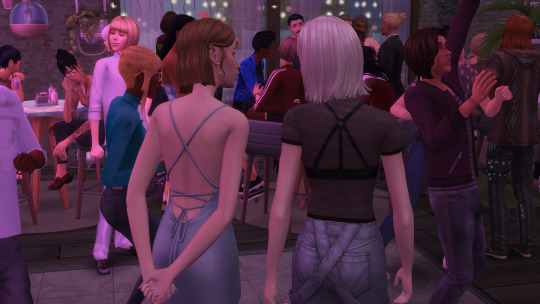
Meanwhile, Marnie becomes invested in Evie as a pet project, and is excited to show her more of the ‘real world’, as she senses Evie’s innocence and inexperience. She takes her to a bar in town one night, and challenges Evie to flirt with at least one boy. This makes Evie anxious. She hasn’t been romantically involved with anyone in so long, and the last boy she even kissed was Jude, over a year ago now.
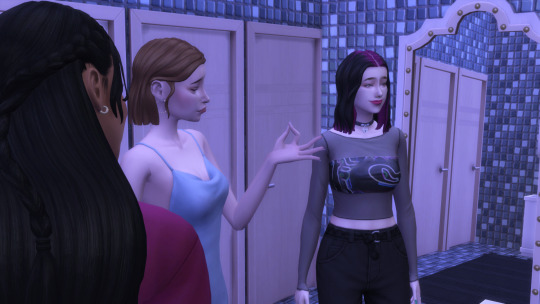
In the bathroom, Evie runs into Jen and Michelle, Jude’s ex girlfriend. She’s surprised to see them, having thought that she would never encounter Jen again after the summer of 2010. Jen is friendly, as always, and interested in Evie’s life, but Evie decides to be standoffish. Jen apologises for giving Evie the wrong idea about Jude’s intentions at the festival. She says she believed he liked her, and she wanted to encourage things to move along, but that she knows she overstepped. Evie pretends not to care. She pretends it is ancient history, and she’d prefer not to discuss it.
Later, she meets a boy named Stephen, and kisses him in the smoking area. She hates it, but feels triumphant. Jude is no longer the last boy to have kissed her, and now she can move on with her life and stop thinking about him for good.
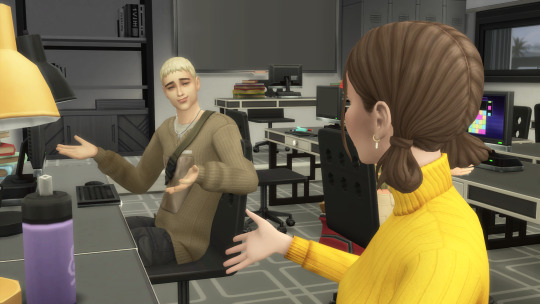
At college, Dean questions Evie, and wonders why she’s so concerned about his opinion of her work, and by extension, her. She thaws on him, but remains reserved.
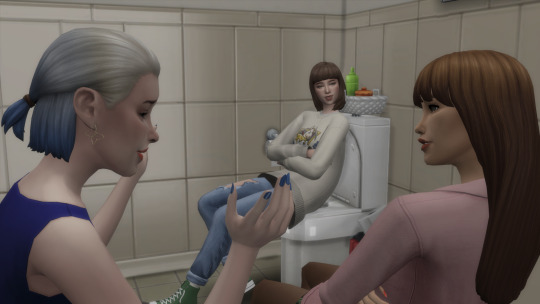
At Christmas, Evie and Marnie go to a party at Marnie’s friend, Fiona’s, house. There, Marnie and Fiona make fun of Dean for being working class and wearing clothes from a charity shop. Evie jumps to his defence, suddenly feeling a kinship with him, as she is from a working class background too. Later, she sees him on the stairs. He’s high and looks at her with an intensity that rattles her. When he touches her hand, she lets him. Curious about him, but also about herself.
Later, before going to sleep, Evie tells Marnie about how Dean touched her hand, and Marnie asks whether Evie was uncomfortable. She says no, but that it was an unusual thing for him to do. When Marnie leaves Evie’s house, she texts Dean and tells him off for being a creep. Dean texts Evie and tells her he doesn’t want to be involved in teenage drama. He blocks her before she can defend herself.
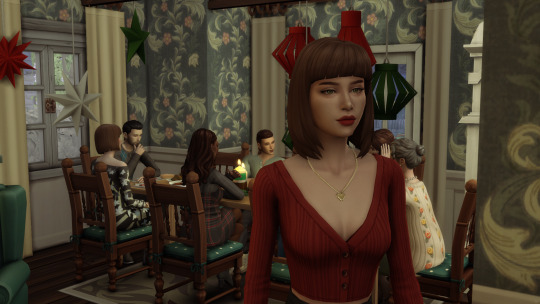
Evie returns home for Christmas. She sees Kelly for the first time in months at mass, and is disheartened when she ignores her and her whole family. Evie reflects on the difference between Kelly’s treatment of her and Claire, who she apparently treats with basic decency now that Claire and Shane are officially together. She wonders what about her so offensive to Kelly.
A fraught dinner with her family at her grandmother’s house makes Evie aware that the attitudes they have towards women are offensive. She sees her potential future in the women around the table, as housewives, women trapped in unhappy situations, unable to fulfil their dreams, serving their men and living a bland existence. It terrifies her, as she sees herself in every woman around the table. Bothered by her drunk, alcoholic husband, Evie’s mother takes her frustration out on her daughter, making a point that Evie is drinking too much. An argument explodes, and Evie leaves the table.
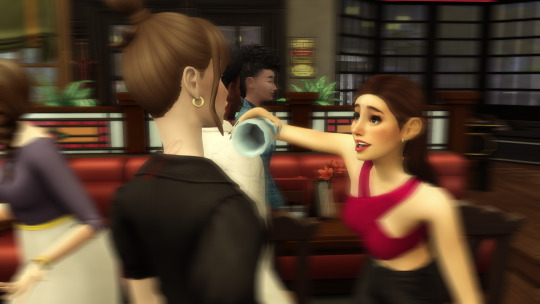
The next day, still rattled, Evie head to the local pub with Claire and Shane, where she immediately drinks far too much. She encounters Kelly by the bar, and tries to talk to her, only to be brushed off harshly. She’s hurt and tries to apologise, but Kelly throws a drink at her instead. Evie flies into a rage and flings herself at Kelly, but Shane steps in and hauls her outside for a stern talking to. He tells her he is worried about her, that she’s drinking too much and hanging out with weird people. Evie scoffs, and expresses disdain for Tullamore and all the boring people in it.
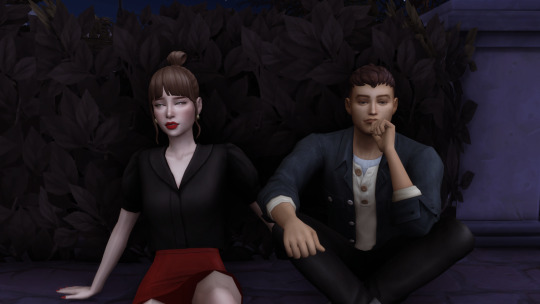
Shane takes the time to talk to Evie and gives her space to open up to him about her feelings. She talks about her sadness, her feelings of being unwanted and abandoned by people she cared about. The end of her friendship with Kelly took a toll on her self esteem, and has been worsened by how she has treated her in the aftermath. She talks about Jude too, and how she felt he liked her, and was hurt by her realisation that he didn’t really care for her at all. She asks Shane to tell her more about him, about anything he knows about the situation, but Shane refuses because it’s in the past, and she needs to learn to move on. He gives her wise advice about life, pain, and loss.
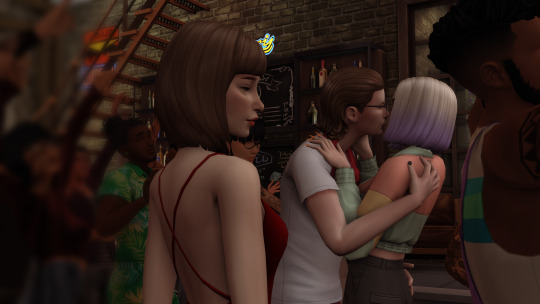
On New year’s Eve, Evie and Marnie go out to a club in Dublin. There, she third-wheels with Marnie and her weird boyfriend, and once the clock strikes midnight, she leaves the club in pursuit of pizza.
She joins the queue in the pizzeria, and quickly recognises Dean’s bleach blonde hair in the kitchen. She knew he worked at a pizza restaurant, but hadn’t known it was this one in particular. With drunken confidence, she decides she will wait until he finishes his shift, and confront him about what happened after the house party. She feels he was unjustified to block her without allowing her to explain herself.
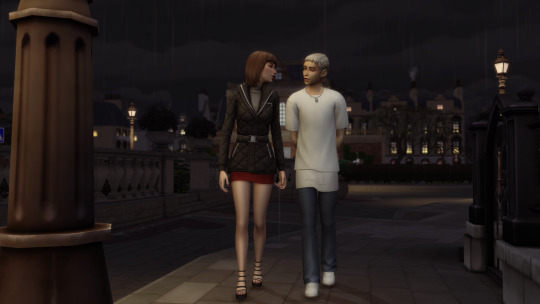
When he finishes, they talk on the street, and he tells her she’s being dramatic. He makes a point of unblocking her on his phone, which satisfies her. Her self esteem couldn’t handle another rejection. He realises she’s drunk and insists on walking her home. Though she refuses initially, he convinces her it is safer. They talk the entire way home, and when they reach the door of her building, she inspects him, and decides that she thinks he’s hot.
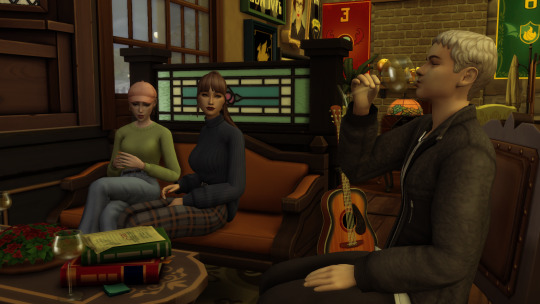
Evie, Marnie, Dean and Fiona (from the house party) go to a pub one evening and talk about their plans for Evie’s birthday. Evie doesn’t want a party, but the girls insist on throwing one, anyway. Marnie and Fiona ask Dean about who he likes at college, but he’s not interested in the conversation. They ask him to choose between the three girls at the table, and to their horror, he chooses Evie. Marnie can hardly disguise her jealousy and calls an end to the night. She and Fiona leave, but Dean and Evie go to another pub for one last drink.
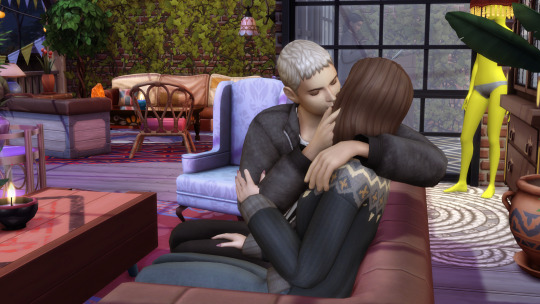
There, he opens up about his family struggles. His father passed away the summer before, and he is dealing with the aftermath. Evie feels the difference between them and cannot relate to this part of his life. Still, she feels for him, and can imagine the pain.
The conversation turns to lighter things, and Dean tells Evie that he thinks she’s sexy. He kisses her, and she likes it.
When he walks her to her door later, he asks to come in, but she refuses. He pushes her a little, but ultimately respects her ‘no’.
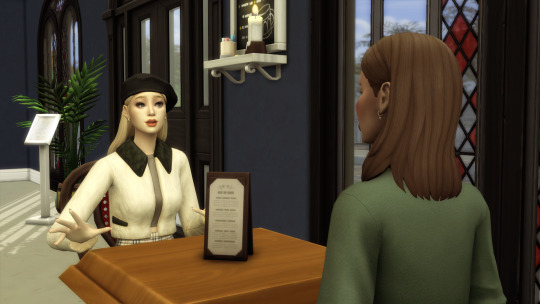
Evie and Claire meet for lunch, and Evie discusses her birthday plans with Claire. Claire becomes awkward and cagey, and alludes to vague reasons she won’t be able to attend the party. When Evie pushes her, she caves, and admits that she and Shane have plans that night. Jude is visiting, and she didn’t want Evie to know, because she knew it would upset her.
This rattles Evie, but she tries to keep her cool. She reminds herself that she’s over him, and doesn’t care about Jude anymore. Claire offers to keep them apart and ensure they’ll never run into one another, but Evie, play-acting the bigger person, tells Claire that he is welcome to come to her party if he wants to. She says she’s fine, but she’s lying. She spends the next week unable to eat out of anxiety.
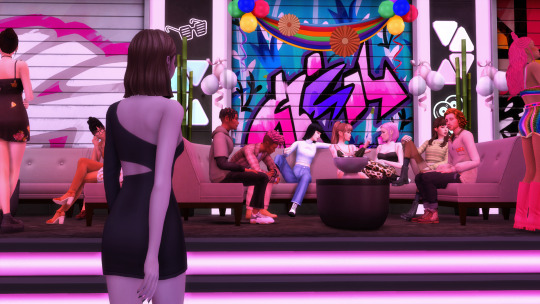
When her birthday rolls around, Evie is so nervous that she drinks shots of vodka from the bottle she’s hiding in the house. At the party, Evie’s peers from college gather round and watch her open her gifts. Everyone has bought her alcohol, and she realises that this is her personality to them. She is the girl that drinks too much. She’s mortified, but laughs it off and thanks them. Marnie gifts her a comically large box of condoms, as a public, cruel joke about how Evie is still a virgin. She pretends not to be embarrassed, and acts cool, even though she feels like the butt of a big joke.
Dean shows up to her party disastrously drunk, and gifts her a bottle of expensive whiskey, stolen from work. She’s embarrassed to be with him.
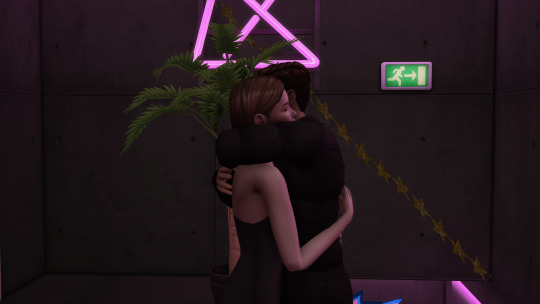
A while later, Shane and Claire arrive with Jen and Jude. When Evie sees Jude, she almost chokes on her drink. She’s surprised by how good he looks, as she has spent a year and a half deliberately remembering him as uglier than he is, to make herself feel better. He is utterly beautiful, and just like always, her body does wild things when she looks at him. Still, he’s different. He’s not the skinny, elfin boy he was when she knew him. He looks like a man now.
He’s kind to her, and still charming, though he has lost a lot of his hyper energy. She’s curious about his life now, and longs to learn more, but knows she is different now, too, and she’s not supposed to care so much. They lose each other at the party for a while, only catching up later, when Jude tells her what he thinks is a funny story about a drugged up guy who was trying to do lines of cocaine off the vertical mirror in the bathroom. She realises he’s talking about Dean. Her Dean.
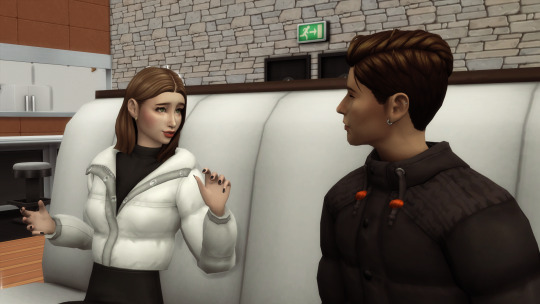
Suddenly ravenous after foregoing food for days, Evie opts to grab something to eat at a kebab shop nearby. Jude offers to go with her for company, and she allows him to. They sit across from one another in the booth, and they have a conversation about their lives. Evie is reserved at first, still stung by the way he left things, and his failure to respond to her emails. He apologises, and explains that his life moved on. He didn’t think she would be so hurt.
Despite her best efforts to be chilly, Jude’s charm eventually melts her armour, and she finds herself talking and laughing with him like she used to. He tells her stories from his world travels and shows her some photographs of his time in Thailand. Evie’s good mood comes crashing down when he scrolls too far on his phone, and accidentally shows her a picture of his girlfriend, Astrid. Her visceral reaction surprises her, but plays it off and is kind about the other woman. Jude, head over heels, gushes about how wonderful she is, and Evie decides it’s time to get back to the party.
When they say goodbye at the end of the evening, Jude promises to stay in touch. She doesn’t believe him, but she’s glad she got to have the closure she wanted.
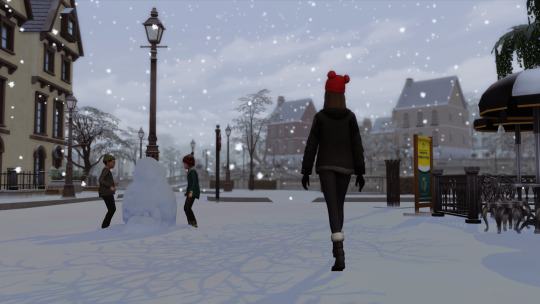
Massive snowfall hits the city and shuts college down for a week. Evie and Claire spend their time wrapped in blankets at home, watching TV together. Desperate for a walk, Evie eventually leaves the house and heads towards town. While there, she gets a text from Jude, igniting an unexpected conversation. Eventually, he calls her, tired of texting, and she picks up. She wanders around in the snow, chatting and laughing with him. The conversation makes her feel warm inside, but the feeling fades when she arrives home to see Dean lingering on her doorstep. She’s still furious with him after his drunken antics at her birthday party.
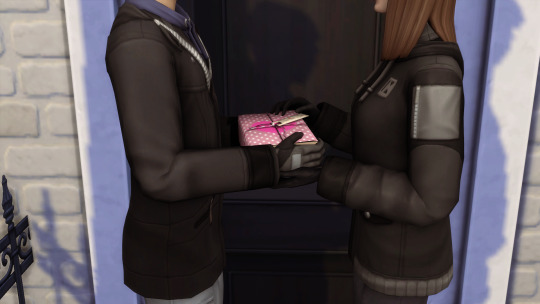
Dean is quick to apologise and take complete responsibility for himself. He begs Evie for forgiveness and gives her a thoughtful birthday gift in place of the stolen whiskey. He explains that family troubles have had him feeling down and promises to do better by her. They make up, but when she arrives home, she immediately lies to Claire, and pretends that she still wants nothing to do with him.
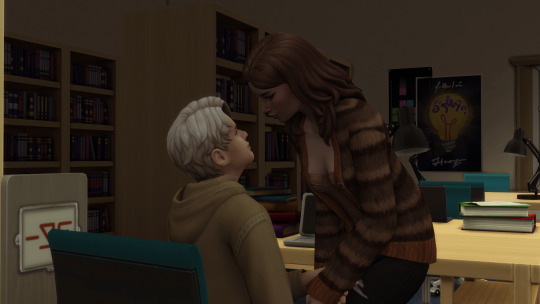
Things progress between Evie and Dean, and by the time spring arrives, they are spending a lot of time together. Dean, however, is frustrated by Evie’s reluctance to take things to a more physical place. She lies to him and tells him she is not a virgin, so he doesn’t understand what’s holding her up. Eventually, she agrees on a date and time to do it with him, deliberately choosing a day when she knows Claire won’t be home to find out.
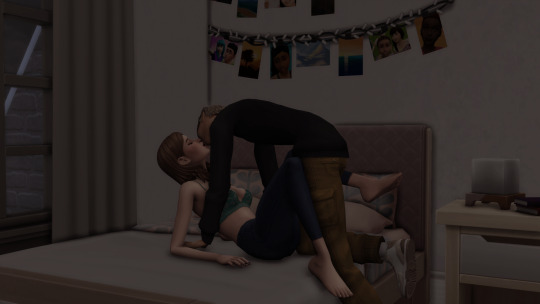
Dean comes over, and after some brief small talk, they have sex for the first time. She’s uncomfortable and unsure of herself, and the experience is awkward. She doesn’t like it so much, but is relieved to have it out of the way. Dean, however, is frustrated by her performance, and promptly leaves for work, leaving her alone in her bedroom. She calls Claire for comfort, but after chickening out and deciding not to share the truth, calls Jude instead. She doesn’t tell him what happened, but they have a conversation that calms her, nonetheless. It seems he has that effect on her.
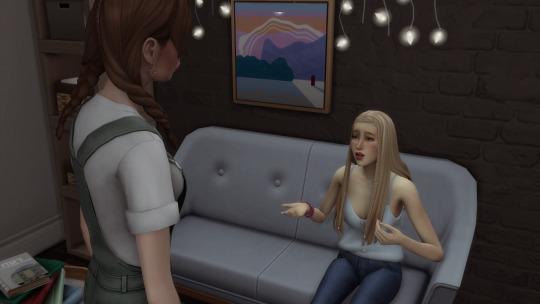
As the college year winds down, things deteriorate between Evie and Dean. Family troubles have left him stressed and angry, and he takes his frustration out on her. Evie walks on eggshells around him, terrified to upset him, lest he insult her, or tell her she’s an idiot for a simple mistake. He still stays over at her house whenever Claire is out, but Evie has started to feel like a means to an end, an object for him to use, rather than an equal. She likes Dean, but she doesn’t like him when he behaves like this. In fact, he frightens her.
One evening, Claire confronts Evie, having found a pile of condom wrappers in the bin. She is confused and hurt, not understanding why Evie hasn’t spoken to her about her new relationship. Evie breaks down and admits that she was embarrassed, and that she knew Claire wouldn’t approve of Dean. Claire admits that she’s not thrilled about the idea, but that she would have liked to have been there for her, and to at least know what was going on, as Evie used to share everything with her. Claire tells her she’s become tired of the way she’s been acting, that she loves her, but she’s almost impossible to be around lately. She says she needs time away from the friendship.
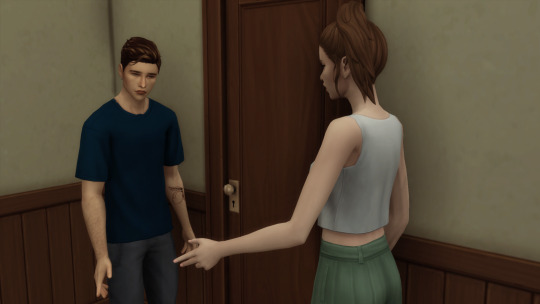
In early summer, Jude returns to Dublin, and invites Evie to a movie night at Jen’s house. She has just had a moment with Dean that upset her, but she goes anyway, despite not feeling her best. They watch films together and eat snacks, and Evie enjoys herself for the first time in quite a while. Eventually, however, Evie’s relationship with Dean comes up in conversation, and Jude and Jen are taken aback. They’re surprised she would date someone like him, based on what they saw of his behaviour at Evie’s birthday party, but Evie attempts to defend him.
Feeling disrespected by their attitudes, she storms off to the bathroom to calm down. When she comes out, Jude is waiting in the hallway. He asks if he can speak to her.
They talk in Jen’s bedroom, but Evie is already bursting with rage. She explodes at him and wonders how he has the audacity to give input on her relationship after what he put her through. Once again, he tries to apologise and explain himself, but she won’t hear it. She projects all of her anger about Dean onto him and blindsides him with her accusations. He doesn’t know what to say. Evie insists that they cannot be friends, admits that she never stopped having feelings for him, and decides that it’s not healthy to stay in touch. She claims he makes her feel bad about herself, and then she storms out of the house into the rain. He doesn’t try to stop her.
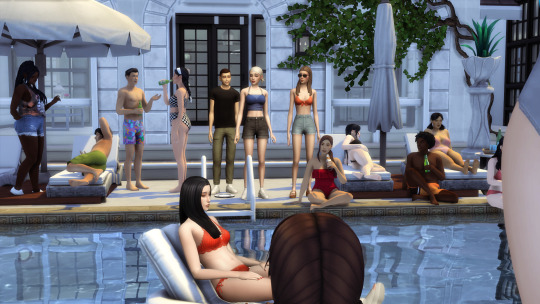
Isolated and without supports left, Evie has hit rock bottom emotionally. When she and Dean go to a party at Marnie’s, a palatial seaside house on the Southside of the city, the vibes are instantly horrible. Evie senses something is off between her and Marnie, and feels like people around her are whispering about her, too.
Dean, who is only affectionate towards Evie when he’s on drugs, kisses her at the pool. She’s thrilled that he’s not embarrassed to do it in front of other people. When he takes her to Marnie’s home gym and tries to have sex, however, his demeanour changes upon her refusal. He berates her for being a prude, then leaves her alone while he goes to spend the evening with other people instead.
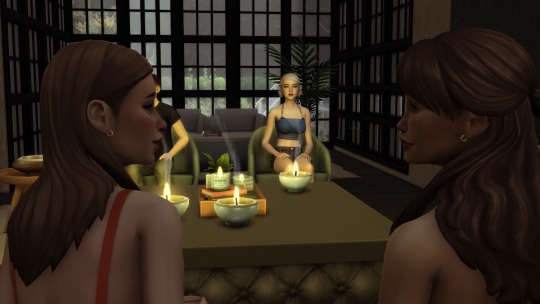
Later, Evie finds Dean, Marnie and Fiona among their other friends in the living room. Despite feeling awful, she feels she has nothing more to lose by sitting with them. They make subtle, hurtful comments about her that hammer further at her self esteem, and eventually, Dean produces cocaine for them all to take. Marnie comments about how Evie could not afford to pay for her share, but Dean says he’ll cover her, challenging her to take it, though he knows she’s not comfortable around drugs. In order to prove a point, Evie does it, but instantly hates it. She wanders around the grounds on her own, feeling insane.
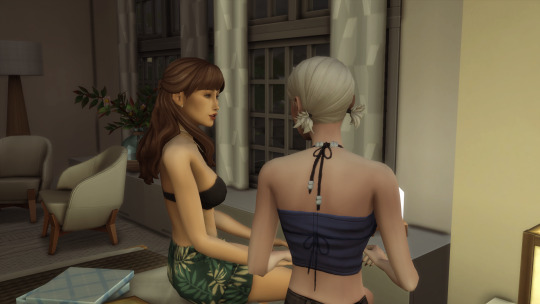
Eventually, Evie finds Marnie’s ensuite bathroom, where she hides in the bath and waits for the drugs to wear off. While there, Marnie and Fiona come into the bedroom. She can hear them talking through the walls. They say vicious things about Evie and tear her character to pieces. They discuss her sex life with Dean and relay private details that Dean has shared with them. Evie is disgusted to hear her intimate life discussed like this. The girls talk about their own relationships with Dean, comparing experiences, and Evie realises that he has been sleeping with all three of them. She is the only one that didn’t know.
Hurt and angry, Evie rushes out of the bathroom. She realises it is too late to get the bus home, so she will be stuck in the house for the entire night. When she comes downstairs, she runs into Dean, flirting with another girl from college. They have an unpleasant interaction in the hallway, and he follows her outside to the front garden to talk.
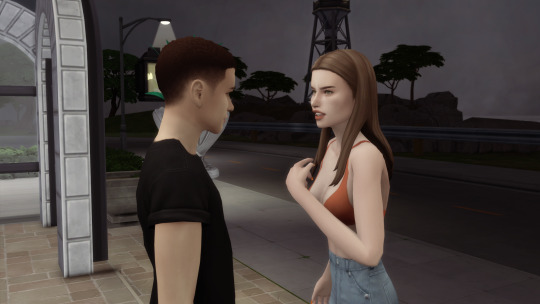
Dean is cruel. He brushes off her complaints and claims that she was stupid and naïve for ever thinking he’d be different. He says he was only ever interested in seeing if he could get her to sleep with him, as a challenge, since she was wound so tightly. Upon realising that her feelings for him were real, he laughs, and as Evie replays their relationship, she can see all of his manipulative tactics so clearly. He had been playing with her emotions right from the beginning. She’s humiliated, realising that her inexperience and trusting nature caused this. She runs to a nearby beach, and sobs inconsolably.
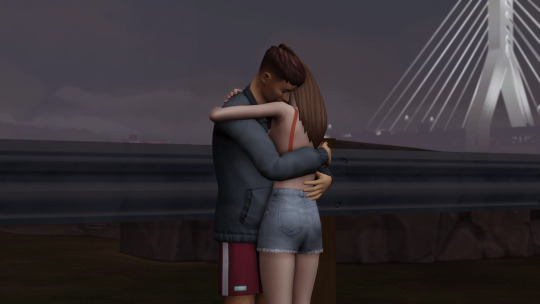
Evie calls Shane, the only friend she feels she can talk to, and tells him what happened. Though it is late and he is more than an hour away, he immediately gets into his car and comes to get her. When he arrives, he’s concerned about her clothes (She’s still in her bathing suit), and she tells him she’s afraid to go into the house and get her bag, as she cannot face the others. Shane gets it for her. He puts her into his car and takes her home, as the sun rises over the city.
14 notes
·
View notes
Note
writer tara tries to brute force through writers block and always gives herself a headache. sam will catch her squinting at her laptop screen, scowling and growling. she picks her sister up and enforces mandatory cuddle time and runs her fingers through her hair.
“Soldier & The Poet”
(how could i not)
——————————————————————————
It’s been three hours, and Tara hasn't moved from that damn computer. In three hours, Sam had cleaned the kitchen, washed their bed sheets, cleaned their bathtub, and ordered Thai for dinner.
And Tara was still staring at her laptop screen, her eyes glazed over.
Now Sam knew better than to slam the computer shut, as they had gotten into many fights over lost writings and deleted files. She also knew that Tara was agonizing over her final story for her poetry class, a credit that would push her toward an early graduation. Sam wasn’t an idiot. She had to do this carefully.
When Tara got into the zone, she wouldn’t move for hours. She won’t eat, sleep, or even breathe until her vision is on the paper. It drove Sam fucking crazy.
As the clock ticked into hour four, she shook her head. This needed to end now.
She made her way over to the kitchen table, sneaking up behind Tara, and quickly snaked her arms around Tara's middle and scooped up and out of the chair.
Tara, freshly twenty-one, was still no more prominent than she was at age thirteen. She fought well, but Sam had the height and strength advantage. After a few moments of yelling at Sam to put her down, you asshole, she finally gave up squirming, just staring up at Sam, arms crossed in displeasure. Sam grinned as Tra jutted her lip out in feeble disapproval.
“Sammy. I’m almost done with my story. Put me down!”
Sam just shook her head with glee, carrying Tara towards the couch. “Nope, Hemingway. We’re gonna cuddle. I’m tired, and you owe me after your writing marathon!” she sang, dumping Tara onto the couch.
Her little sister hit the cushions with an oof, smiling despite the frown on her head. Scooting herself over so Sam could hold her, and she motioned for her big sister to join her. Sam slumped down next to her, positioning herself to face Tara.
The two sisters were nose-to-nose, one smiling, the other still slightly grumpy.
“You know, you could’ve just told me to stop,” Tara mocked, rolling her eyes in good fun.
Sam rolled her eyes right back, bopping Tara on the nose. “Like that would work. You’re over there, writing the great American novel while I sit all alone—poor me. So alone and abandoned,” she glumly said, feigning sorrow.
Tara rolled her eyes and smiled. “It’s my final project loser. And like you’d tell me to stop. You’re my, what were the words? Oh yeah, my biggest cheerleader,” she teased.
Shrugging, Sam pulled Tara into her chest, relishing how Tara sighed as she snuggled in. The two sat like that for a minute, soaking in the warmth of each other.
Finally, Tara broke the silence.
“I’m writing about us. It’s called The Soldier and The Poet. My brave knight protects the poet, who brings them fortune and fame in exchange for their loyalty and love,” she whispered into Sam’s chest.
Sam just hummed, holding her girl closer. She knew that already. She was reading Tara's work as she stood behind her. But it was nice to hear Tara say it out loud.
“Tell me about them, please,” she murmured, planting kisses into Tara’s hair.
She could feel Tara shiver against her chest, squeezing Sam tightly. Tara loved telling others about her work, but she loved telling Sam the most. The two had their own world alone, where they could exist. And both loved it dearly.
“There will come a soldier who carries a mighty sword-” Tara began, her voice wavering in excitement.
Sam closed her eyes, a grin on her face, letting her little Hemingway steal her heart all over again.
#scream#sam carpenter#tara carpenter#carpenter sisters#ao3 author#my writing tag#soft and sweet :)#thank you kai#AU: protect my heart
76 notes
·
View notes
Note
Hiii!
Here’s my question (please take your time answering, no rush at all)
If everyone in the BTY universe had a box that they kept hidden in the back of their closet or underneath their bed - just a box of things that they find important or sentimental or reflect parts of themselves they don’t show anyone else or a part of an old memory or whatever else. What would this box contain for each of them?
Hope you’re having a good week!
- 🦋
y/n’s box — tucked in the very back corner of her new york apartment closet, where the air feels a little heavier
a wrinkled polaroid of her and jeno from the night after the state championship — her smile is faint, like she didn’t want the photo taken, and his is wide, toothy, still sweaty in his ravens hoodie
a folded paper with her own stat breakdown from her exposé project, printed and annotated by hand, the same one jeno once spilled water on during a fight
a folded paper timetable from her first week of college—every line colour-coded, hyper-organised, with 'get ahead' scribbled in the corner.
the black hair tie jeno used to wear on his wrist.
a note she wrote to herself after the takedown—crumpled, rewritten, never thrown away. it says: you are allowed to take up space.
jeno’s box — buried under old basketball shoes in the back of his wardrobe, untouched since college
a small gold pendant that isn’t his — it’s y/n’s, it slipped off her neck during sex once, and she never asked for it back
the first letter y/n ever wrote him, unfinished and brutally honest, where she called him "the scariest thing i ever wanted"
a hospital bracelet from a game-day injury he never told her hurt as bad as it did
a printed email from y/n, the first time she ever gave him feedback on a project. he pretends he kept it for practical reasons, but the way she wrote “good job, jeno” in bold… he’s reread it more than once.
a single sheet of music she wrote, titled "twenty-three"
mark’s box — neatly organized inside a locked drawer in his writing desk
a postcard from florence y/n once picked out for him and never mailed
a newspaper clipping of jeno’s draft day, marked with red pen in the margins: "does this mean he won?"
a poem he wrote but never published, about areum
a fortune from a cookie that read: "love is remembering who someone was before the world asked them to change"
a playlist burnt onto a cd titled "january."
areum’s box — hidden beneath layers of scarves in her vanity drawer, smelling faintly of vanilla body spray
a crushed flower from the wedding villa that she tucked into her hair and forgot to take out
a silk ribbon jeno used to tie her wrists once. she swore she threw it away.
the first edition of a poetry book she never finished reading. the first page is underlined three times: “i am learning to be soft without breaking.”
her student ID, the one with her old smile.
a perfume tester labelled “fig + cedar.” it smells like how she wants to be remembered—gentle but grounded.
karina’s box — stored in a suitcase she tells everyone is just for seasonal clothes
a pair of silver earrings y/n gifted her in their second year, still unworn because she was saving them for something
a matchbook from a bar they used to sneak into with fake ids
a magazine clipping of an article she wrote about female friendship, with the title circled: "when the line between love and protection blurs"
one of jeno’s old sweatbands, found after the threesome, shoved into her tote bag and never returned
a sealed envelope with her own name on it, in y/n’s handwriting. she’s never opened it.
yangyang’s box — under his bed, shoved inside an old shoebox with tape over the lid
a keycard from the new york hotel where he almost fucked her again and didn’t
a sketch she once absentmindedly made of him in class, his name misspelled at the top
the flash drive he almost lost. the one that almost got them both expelled.
a lighter she left at his apartment in senior year
a printout of an email he never sent, titled: "why i should’ve kissed you when i had the chance"
jaemin’s box — stored beneath vinyls, inside his record crate
a candid photo from a disposable camera of karina asleep on his couch, her hand loosely curled on his chest
a tiny plastic heart from a birthday cake y/n baked him, long expired
a copy of the playlist he made for jeno before the state championship, titled "run faster, cry later"
a silk scrunchie someone left at his place. he thinks it might be y/n’s. he keeps it anyway.
a blank postcard from new york, signed: see you when you’re ready.
a keychain that says “breathe,” gifted by karina during finals week.
donghyuck’s box — at the top of his closet in a shoe box marked "not porn"
a t-shirt that still smells like y/n’s shampoo, from when she crashed at his place after the fallout
a napkin with a joke he wrote mid-class to make karina laugh
a necklace he bought on a trip with jaemin and never gave to anyone
a scribbled quote from his notes app: "they only come back when they know you’ll still be there."
nahyun’s box — inside a cosmetics pouch she keeps zipped and locked
a signed basketball jersey from the night jeno made history. she doesn’t know why she took it. she can’t throw it away.
a lipstick y/n once left at the bar, the cap cracked
a sleep mask jeno used when they traveled together. it’s still shaped like his face.
a tear-stained note she wrote but never sent: "do i matter to you or do i just fill time?"
a pill bottle, empty. she kept it for a reason.
chenle
a concert ticket stub from the first time he saw donghyuck perform live—he still says it changed his life.
a pair of chopsticks from a dinner that turned into something more.
a beaded bracelet from a fan. he doesn’t wear it, but he keeps it close.
a printed meme y/n sent him once. he taped it to the inside of the lid.
a receipt for champagne that no one remembers buying but everyone remembers drinking.
a scratched-up mini speaker they used during late-night karaoke.
shotaro
the choreography notes from the routine he choreographed for the championship reveal.
a small bottle of cologne that smells like new york.
the ribbon from the gift irene gave him when he joined the core group.
a dried lemon wedge from the night he and jaemin did too many shots and ended up dancing in the pool.
a gold chain he only wears when he’s feeling like himself.
a note y/n wrote on his mirror once that said: “the heart of this house.”
2 notes
·
View notes
Text


Books 3 and 4 of my 2025 Read Real Books goal are finished! (I finished the poetry back in February but didn’t post it, hence the double post now (and I’ve read a lot of romance books in the interim between these two—Deep End, The Kiss Quotient, The Ex Vows, Wooing the Witch Queen, The Heart Principle, Butcher & Blackbird, Book Lovers, and working on Great Big Beautiful Life now (all a little mid except for the Helen Hoang and Book Lovers tbh).
Quotes and thoughts below the cut—
3. Human Dark with Sugar by Brenda Shaughnessy
I'm Over the Moon
I don't like what the moon is supposed to do. Confuse me, ovulate me,
spoon-feed me longing. A kind of ancient date-rape drug. So I'll howl at you, moon,
I'm angry. I'll take back the night. Using me to swoon at your questionable light,
you had me chasing you, the world's worst lover, over and over hoping for a mirror, a whisper, insight.
But you disappear for nights on end with all my erotic mysteries and my entire unconscious mind.
How long do I try to get water from a stone? It's like having a bad boyfriend in a good band.
Better off alone. I'm going to write hard and fast into you, moon, face-fucking.
I absolutely adore Shaughnessy’s poetry (I first fell in love with “Project for a Fainting” a few years ago), and so I was excited to read a full collection of hers. The poetry is beautiful and angry and not always concerned with being pretty, and I love the sharp, sometimes petty ways Shaughnessy dialogues with life in it. I have two more books of hers to read over the year, and I imagine/hope they’ll be some of my favorites in this project.
4. Dayswork by Chris Bachelder and Jennifer Habel
Melville rode twenty hours on a steamer from Albany to New York City, where he transferred his brother's body from the Prince Albert to the Hendrik Hudson, then sat up with it all night on the return trip up the Hudson River.
He was twenty-six years old.
Until I was twenty-five, I had no development at all, he wrote to Hawthorne as he neared completion of Moby-Dick.
He compared himself to a plant grown from an ancient seed taken from a coffin in an Egyptian pyramid—
Like that plant, he had been, since age twenty-five, continuously unfolding.
But I feel that I am now come to the inmost leaf of the bulb, and that shortly) the flower must fall to the mould.
A "frighteningly accurate premonition," wrote one scholar, "an elegy to his writing career," written at age thirty-one.
At thirty-one, Melville's life, James Wood wrote at age thirty-one, had been justified.
James Wood is now fifty-four.
The Biographer is eighty-four.
Conor Oberst is forty.
Helen Vendler is eighty-seven.
My husband is forty-nine.
I am forty-nine.
This is a longer quote, but I wanted to do justice to the style of the prose/poetry. It reads like prose, is often lineated like poetry, and seems, on first glance, like a poetic look at Melville’s life. And it is that, but the novel is also about literary scholarship, the problems of biography, lockdown during a pandemic, authorial aspirations, marriages, women’s work in a marriage, and the question, how great does your work have to be to justify your life?
This question is asked in the context of a “traditional” family structure—how great does a man’s output (creative, scientific, etc) have to be to outweigh the domestic sacrifices his family makes to allow him that greatness? And is this a fair question to ask at all—is this how love, how family, how greatness are really measured? The book asks readers these questions early, and then brings us back to them again and again throughout. There’s no answer, and I don’t think the book ever intends to give one beyond “it’s complicated”—nor do I find I want it to give me an answer for this.
I read Dayswork slowly, in small snatches as I woke up with baby foundress and spent time with them in the 4am-7am hours before I woke up my husband so I could get ready to go to work, and the questions the book asked felt especially relevant in those moments.
All in all, Dayswork is excellent and a little haunting and made me want to pick up Moby Dick for a reread.
5 notes
·
View notes
Text
Through the World's Far Ends
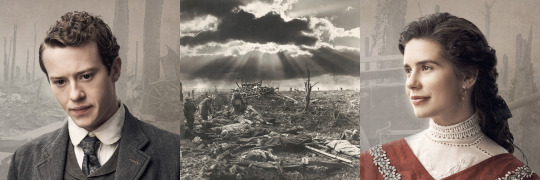
Pairing: Leonard Bast x Helen Schlegel (Howards End)
Summary: Several years after his ill-fated affair with Helen, Leonard enlists to fight in World War I, hoping it would put an end to his miserable life. However, when he runs into Helen again in the trenches of Passchendaele, Leonard discovers that life may still be worth living after all.
Warnings: angst, mentions of war, violence, and injuries, implied infidelity, suicide ideations
Word count: 7.2k

If I should die, think only this of me: That there's some corner of a foreign field That is for ever England. There shall be In that rich earth a richer dust concealed; A dust whom England bore, shaped, made aware, Gave, once, her flowers to love, her ways to roam, A body of England's, breathing English air, Washed by the rivers, blest by suns of home.
Those lines echoed in Leonard's ears as he looked over the mud-churned fields of Passchendaele that rainy October day of 1917. Had he read them ten years ago, back when he was still a boy of barely twenty-one with a head full of dreams and a heart full of poetry, he would have marveled at their beautiful ideal, their quiet exultation. Now, he couldn't help but snicker at them for their hopeless sentimentality. If there was anything of England in these foreign fields at all, it probably wouldn't be the England that pretty, posh Rupert Brooke was thinking about. No, it would be the England that Leonard himself was familiar with, the England of damp basement dwellings, of grimy streets, of cold and hunger, and long, tedious nights.
And if he should die, there would be no one to think of him. Not his brother and his two sisters, who had long ago given up on him. Certainly not Jacky, who would never have let him enlist had she still been alive. Poor Jacky. She had been rather excited when the war first broke out. To be honest, so had he. There had been a fevered exhilaration in the air, a sense of purpose in everything and everyone, hectic but thrilling at the same time, which had distracted the two of them, for a moment, from the miserable humdrum of their existence.
Still, for all that excitement, Jacky wouldn't hear of him enlisting, even though it would've at least solved their immediate financial problem—the Army pay wasn't much, but it would be something for her to live on. But she had burst into tears whenever he mentioned it. "No, Len!" she'd kept saying, clinging to him as if afraid Lord Kitchener would come to personally snatch him away. "If something happened to you, how would I live?"
Leonard had been tempted to say that if he should be killed, she could count on a war widow's pension, but Jacky had become so hysterical that he'd only given her a clumsy hug and said, "All right, Jacky, I won't go," while trying to hide the bitterness in his voice.
When she succumbed to the consumption that had been slowly eating away at her, a little over a year later, Leonard had sincerely mourned her. She had been his constant companion, for better or worse, for nearly ten years, and when she was gone, she left a void, if not in his heart then at least in his life. While she was alive, he had to find ways to provide for her, to take care of her. Without her, he was without a purpose.
After Jacky died, he'd thought that he would simply flicker out and die too. But he found that it was not so simple. Living had become a habit, and like any habit, it was difficult to shake off. And so he had enlisted, only waiting a decent period after Jacky's funeral so it wouldn't seem he was defying her memories. He didn't much care about the war. He only thought that if he couldn't give up his life on his own, he would let others snuff it out. He completed his training and was sent to Belgium just before conscription was introduced, in January 1916.
But even in the war, death eluded him. His health, which had suffered from malnourishment and the smog and grimes of London, actually improved thanks to Army food and regular, if strenuous, exercises. He didn't mind the cold and the wet and the mud of the trenches. And though he had seen men die in front of him, men blown to bits by shells, men cut to ribbons by barbed wires, men blistered and blinded and cooked inside out by mustard gas, and men who drowned in the mud because their friends were forbidden to pull them out, though death was all around him, he remained more or less untouched.
To be fair, he didn't exactly go looking for death. He thought that before he died, he should make himself useful and do what he could to help others, so he did. He followed orders without asking questions, bent his head under the explosions and the gas and the horrible weather and did as he was told. He tried not to shoot when he could help it, and when he did shoot, tried not to aim at anyone in particular. He didn't want that on his conscience as well. He preferred the menial work, never shying from digging and repairing the trenches, acting as a stretcher bearer, and carrying supplies to the front.
What he really wanted was to stop thinking. Once, a long time ago, during the darkest time of his life, and also the best time of his life, he'd wished for something to do, to stop him from thinking. Now he believed that if he toiled hard enough, made himself tired enough, he would be able to stop thinking. It didn't quite work yet. Even on days when he'd only had an hour or two of sleep, the thoughts kept coming, slowly but inexorably—about death, about Jacky, about things he'd done and hadn't done, about things he had buried deep in his mind—all rattling inside his skull like lunatics rattling the bars of their cages. The one thing he didn't think about was the future, for there was no future. The war may never end, and for some people, it would never end. Leonard had seen enough wounded men and shell-shocked men and men with scars deep within them, where nobody could see except for those who knew where to look, and he understood that those men would never come back from the war, regardless of what happened to them. Sometimes he wondered if he would be one of them.
Such thoughts were presently crowding his head as he turned over in the dugout, trying to find a comfortable position. There was a lull in the racket of gunfire and shellfire and rain, and he wanted to get some rest—not sleep, he had forgotten what it was like to really sleep for months now—before nightfall. A new shipment of supplies had just been brought in that day on mules and wagons, and Leonard's infantry unit would be assigned to haul these to the front after dusk fell.
The other men in the dugout were squabbling. Leonard didn't mind the bickering. In fact, he welcomed their voices to drown out the thoughts in his head. It appeared Percy Armitage had received some gramophone records in the post that had come with the supplies, but due to some accident or carelessness, the sleeves had been misplaced, and now they were arguing which was which and which to play first. The men were often sent little gifts like that from home, and these were freely shared amongst them all—it was how Leonard became acquainted with the works of Rupert Brooke and other war poets. Though books these days no longer held the allure and enchantment they once had for him, they were something to relieve the boredom in the trenches. All his life, Leonard had wished he could discuss books and music and culture with easiness, an easiness that did not come easily for men of his class. He thought, with a grim sense of smugness, that he could do so now, provided that the books were about the horrors of war.
"Lads, lads," Percy, a veteran of the Boer War and therefore older than most of them, was saying, like a stern but benevolent father to his children. "You shall all get a turn. But these are my records, and I'm going to choose first."
There was a scratching sound of the needle being lowered onto the record. The first soft notes floated out, and as if by magic, all the men fell silent, enraptured by the unimaginably normal, everyday sound of music.
But Leonard was mistaken—the music wasn't soft, not at all. For a moment, it seemed the shellfire and the thunder were coming in the middle of the day instead of at night as usual, as the first notes did not float but boomed from the gramophone, followed by bursts of what sounded like rapid gunfire that chased each other around the cramped dugout. While the music built and built, Leonard could almost hear the chill wind that blew across the battlefield, feel the drumming of the rain on his skin, and see, under his closed eyelids, the men jumping up from the trenches during a raid or slinking across No Man's Land for a reconnaissance in a moonless night. Herr Beethoven had never been to the trenches of Belgium, so how the devil did he capture it so well in his music? For it was, indeed, Beethoven's Fifth Symphony, such as Leonard hadn't heard in years and years.
And, as though stirred by the music, memories surfaced—the gallery at Covent Garden, the music halls, the evenings he could get away from his desk at Porphyrion early enough to lose himself for a few hours in music and culture, but he never quite managed to lose himself in it, not really, no matter how diligently he attended the operas and the concerts, no matter how many books he read, he knew all the names but could never form his own opinion about them. And another memory, one of those he had buried away—a girl, her hair coming loose under her hat, her eyes, so bright they lit up the dreary interior of the Prince Regent's Hall, transfixed on the orchestra while she swayed slightly to the music, her elbow almost touching his a few times.
For the first time in seven years, Leonard allowed himself to think of her a little.
Helen. Miss Schlegel. His Miss Schlegel. No, not his. Never his.
He'd looked at her with wonder and envy then, in the gloom of the Prince Regent's Hall, like a failed artist looking at a painting in the National Gallery. Why did the music move her so? What was she hearing that he wasn't? What did one have to do to acquire such passion? Even back then he'd known, this was something he could never attain, something he could never be, and that was what had drawn him to her. He'd always tried to pursue beauty, always on some hopeless quest for it, but only ended up getting sucked down into the mud—not that different from where he was now, really.
In the past seven years, he had become quite adept at not thinking about her. Whenever he saw something that reminded him of her—and a lot of things reminded him of her—he would immediately find something else to think of, was there anything left in the cupboard for supper, whether he could persuade the landlord to hold off the rent collection for another week, whether it was too soon to write to one of his sisters, Blanche or Laura, again, to ask for money. He'd think and think furiously until all thoughts of Helen were pushed from his mind. He did it almost automatically now. It had turned into a habit, like everything else.
But here, in this cramped and clammy dugout, that habit had deserted him. Even some hours later, when he lifted the heavy pack full of hot rations on his back and walked out into the rain and the cold, she still occupied his thoughts, slow and dull as they were from lack of sleep. He stepped on the duckboards that crisscrossed the muddy landscape, one small figure in a long snaking line of similar figures, while shells and bullets whizzed by him, while the sweet stink of rot and the acrid smell of mustard gas assaulted his nostrils, while rain drummed on his tin hat, but he hardly noticed any of them. His mind was filled with Helen, Helen when he'd first seen her at the Prince Regent's Hall, Helen in her bright dining room at Wickham Place, her head tipped to the side as she urged him to talk about his walking, enthusiasm aflame in her eyes. And most of all, Helen when he'd last seen her. He heard her gently chiding voice, saw her face full of sympathy when she discovered the squalor in which he and Jacky had been living, felt the force of her righteous fury as she tried to help them, dragging them to confront the man she believed had been responsible for their misfortune—Henry Wilcox, the then-fiancé of Helen's sister, Margaret.
He thought of other things as well, things buried even deeper. He remembered the fire-lit room in the hotel in Oniton, the utter shame and despair he'd felt when he revealed the truth about Mr. Wilcox and Jacky to Helen, the tears in Helen's eyes as she drew him to her, her arms around him, comforting and seeking comfort at the same time, her mouth trembling under his, their bodies finding each other like two magnets, or perhaps two drowning victims in a heaving sea.
He wondered if she ever thought of him.
Probably not.
He wondered if she was still living in Germany. Margaret, Mrs. Wilcox, had told him so, on that freezing spring day seven years ago, when he trudged to the Wilcoxes' residence on Ducie Street in the hope of finding someone, anyone, to whom to confess his sin. Upon finding out from Mrs. Wilcox that Helen had been traveling in Germany and perhaps planning to stay there indefinitely, the confession died on his lips. He'd thought he knew her reason for staying away. Helen had asked her brother to send him a check of five thousand pounds, but the sight of it, with his guilt still so fresh in his mind, had burned Leonard so much that he'd returned it. At Ducie Street, he'd looked into Mrs. Wilcox's sharp and sad eyes, wondering what she knew, how much Helen had told her. Fear and shame had choked his voice, and he had gone back to his basement, unabsolved.
He had been so desperate, the remorse corroding him so relentlessly that he'd almost confessed to Jacky. But he'd held himself back. If he hadn't managed to control himself with Helen, then at least he had to control himself with Jacky. Telling her would have achieved nothing except to selfishly force her to bear the pain with him, and Jacky wouldn't have been able to bear it. Leonard had argued with himself that Jacky's affair with Mr. Wilcox might have driven him and Helen into each other's arms, but it didn't change the fact that Jacky had been the innocent party in his affair with Helen. It would have been cruel to deprive her of that innocence. And so Leonard had kept quiet and was determined never to think of Helen again, until now.
The irons of guilt were still there, but time and the horrors he'd witnessed in the war had blunted the edges, leaving only a kind of bittersweet nostalgia. Yes, he had done wrong and lost control of himself. But he had also gotten an adventure out of it, had seen and touched and tasted something of beauty. And hadn't he paid enough for his crime in the seven years since? So perhaps that was all right. He only wished Helen didn't have to pay as well.
Lost in his memories, Leonard didn't notice a shell exploding right next to him. He didn't feel the shrapnel hit him. He was only momentarily confused when the world went mute and turned sideways, but even that confusion didn't last long, for he soon had his answer when he fell off the duckboards and sank into the mud.
His last thought was, I hope they don't pull me out.
And then, the mud came over his head, and finally, mercifully, he stopped thinking.
***
In the field ambulance of the Women's Hospital Corps, Helen Schlegel was sitting down with a cigarette. What she really wanted was some hot cocoa, to have the thick sweet taste of it remind her of lazy evenings at Wickham Place, curled up on the bed with Meg and Tibby, talking about their day, laughing over nothing at all, in those carefree years that seemed a lifetime ago. But the supplies had run out, so she had to make do with a cigarette. She had been on her feet for nearly fourteen hours, and had only had about three hours of sleep before that, though she hardly felt tired anymore. Exhaustion was now a state of being, and she had gotten used to it, just as she had gotten used to a lot of things since joining the Corps two years ago. Even after the main Women's Hospital closed in Paris in 1915 and a new one opened in London, she had elected to stay with the field hospital, despite Meg's pleas for her to come home.
If Helen was honest with herself, she would admit that she was rather apprehensive about returning home. She hadn't stepped foot on English soil in seven years. When the war broke out, she had decided to stay in Munich, where she had been living at the time—after all, she was half-German, and she felt that to turn her back on Germany would equal turning her back on her own late father. Besides, there was a huge upsurge of anti-German hatred in England, as Meg had written to her. Tibby had had some trouble when enlisting due to his German last name. But it soon became clear that she could no longer go on living in Germany, if for nothing else than the simple reason of food shortage. Her German cousins were struggling themselves and could not help. So Helen had gotten on a train with every intention of returning to England, when her route brought her to Paris and the Women's Hospital there. Suddenly she'd found a place where she could be of use, since she spoke French and German and could help both patients and doctors. When Helen wrote to tell her sister she was staying, Meg had come to Paris herself, looking thin and worn-out, with gray in her hair. Her husband, Henry, had recently died. Henry's children, who had never quite accepted their father's second marriage, had kept their distance, and Meg had been living by herself in Howards End. Helen had briefly considered coming home to keep her sister company, but she'd decided she could do more good on the battlefield. So she'd told Meg to take care, and stayed.
When asked about her family, Helen always said that she'd lost her husband in the Somme. It was easier than the truth, though she believed that her fellow nurses and the doctors would not care or judge her if they knew. They were all women, most of them her age or older than her, but not by much, some younger, eager-eyed graduates from Oxford and Cambridge, and had seen a lot in their training. Looking at them, Helen wished she had gone to college, had done something more worthwhile with her youth. Oh, she had filled her days with plenty of pursuits, certainly, but what good had those done her, or anybody else, for that matter? Quite the opposite, in fact. It had all been frivolous, the meetings, the causes, the anger, and had led only to heartache and tragedy, not only for herself but for her family and for others as well. Yes, one good and beautiful thing had come from all that, but it was a miracle that it had existed at all, and Helen had to remind herself that the result of beauty did not absolve her of the sin she'd committed in creating it. She supposed it was why she had been so keen on staying at the front to help the wounded. She wished to atone.
And here was another chance for atonement—some stretcher-bearers were trudging toward the ambulance tent, their gait heavy and plodding. Helen sighed. She wasn't expecting to get any sleep—nighttime at the front was rarely quiet—but she'd had a letter from Meg and had been hoping to read it. Well, it could wait. She took one last drag of her cigarette, stubbed it out, and went out to meet the men.
When she first laid eyes on the form lying on the stretcher, in the gloom at the entrance of the tent, Helen thought the bearers were playing a practical joke and bringing them a load of sandbags. As they walked further into the light, she saw that it was not sandbags but a man, a man almost completely encased in mud. There were orders not to stop for anyone who fell off the duckboards, since doing so would hold up the line, but the stretcher-bearers explained that this man had been carrying hot rations, and the others, wanting to save his pack, had pulled him out along with it. The hot food had been recovered, so now here was the man—saved almost as an afterthought. Lucky bastard.
The women of the Corps didn't care who the wounded were, British or French or German, or why they were saved. So the mud-cased man was rolled off the stretcher onto a temporary bed. Helen and another nurse, Vera, who had left her history study at Queen's College in Cambridge to train with the Voluntary Aid Detachment, started picking off the mud in bloody chunks, dropping them into a bucket by the bed, and wiping off the residue with damp sponges. The man was still breathing, his chest moving up and down rapidly.
Vera removed the man's clothes with scissors and sucked in a breath. "He's got a lot of shrapnel in his legs, Helen," she said.
Helen continued to wash the man. "There's a lot on his back as well. I think he's going to need some morphine."
"I'll get it," Vera said and walked briskly off.
Under the sponge, the man shivered. "You seem to have a knack for finding me at my worst, Miss Schlegel," he said.
His voice was hoarse, clogged with mud, but it rang a bell in Helen's mind, a bell from far away and a long time ago, a time when she'd cared about music and art and social justice and fighting against the likes of Henry Wilcox. It had nothing to do with this world of mud and blood, when all she cared about was to help these men—boys, really—and to give them a little comfort while it still mattered. The war had simplified a lot of things for her. But apparently not enough, for here was the past, coming back for her in the form of—
"Mister Bast?" she asked, not quite believing it. "Leonard Bast?"
With trembling hands, she picked off the clay that had dried on his face like a death mask and gave him a quick wipe of the sponge. A pair of brown eyes, gentle and patient like those of a cocker spaniel's, blinked at her from under long lashes clumped together with mud.
"Good evening, Miss Schlegel," he said, with great difficulty.
Helen bolted up from the bed, heart hammering as if someone had trapped a machine gun in her chest.
Vera brought the morphine. "Are you all right, Helen?" she asked. "You're looking quite pale."
"I need some air," Helen managed to reply, before walking away, ignoring the bewildered look tinged with hurt in the brown eyes of the wounded man.
She ran out of the tent, into the cold and rain outside. The sky was a faded, patchy black cloth, lit up by the shells that flew and fell and exploded like fireworks. She couldn't tell if those shells came from the German side or the British side. She could only pray they didn't find their targets. A horrible smell hung in the air, the same smell that clung to her clothes and her hair and her sleep, the battlefield smell of death and gunpowder and mustard gas, but she breathed it in anyway, trying to clear her head and her heart.
Her first instinct was to weep, weep for the broken body covered in mud and the ruined, wheezing voice. Occasionally, she did weep over the wounded boys that came through the hospital, wept at the look in their eyes, sometimes imploring, sometimes reproachful, and at her own helplessness. But then came a burst of absurd joy, brighter than the shells exploding over her head. What did she have to be joyful about in this world, where boys were sent to die senselessly, meaninglessly? For a moment, she didn't care. He's here! Alive and—perhaps not well, exactly, but as well as could be! For a moment, she was that carefree girl again, curled up in bed with her brother and sister, comforted in the certainty that tomorrow would be exactly the same as today.
In the past seven years, if she thought about Leonard at all, it was often with regret and remorse. It was not that she wished she had behaved differently or things had turned out another way—no, never that. But she wished she could have given him some peace and let him know she never blamed him, so he mustn't blame himself. For she knew now what agony he'd lived through in all those years. One look at those eyes, so timid and frightened as they settled on her, and she knew. Yet there had been joy in those eyes as well, the same joy coursing through her that made her want to both laugh and cry.
Well, he was here now. If she wanted to let him know all that, she could. And she was finished with running away.
She went back inside. Vera was still washing Leonard's back, wiping away the seemingly inexhaustible mud. Helen took the sponge from her. "Let me do it," she said.
"Are you sure?" Vera asked. "You were very pale back there."
"I'm fine now. Go on, take your break." She handed Vera her pack of cigarettes.
With one last quizzical look at Helen, Vera pocketed the cigarettes and went out.
Leonard's eyes lit up as Helen sat down by the bed, and she felt her heart constrict, sweetly, painfully, in her chest.
"I thought you were a dream," he croaked.
"Don't try to talk," she said. It came out harsher than she'd intended. She asked him to move his fingers—good—move his toes—not good—turn his head—not so far, good—and told him she was going to remove the shrapnel now, short, business-like instructions and explanations, same as she did with all the wounded men.
"Have you been here all this time?" asked Leonard.
"We've been in Flanders since last year, yes."
He let out a small exhale, like a sigh, or perhaps a little laugh, amused at the twist of fate that had brought them together yet again.
"You're not pleased to see me," he said.
Helen reached for the tweezers, steadied her hand, and delicately picked a scrap of metal out of his flesh. "Don't be silly. I was shocked, that's all. It's not every day one finds a friend in a cake of mud."
"Is that what we are—friends?"
Were they? She didn't know what else to call him, what name she could give to the connection between them, fragile and near invisible yet indestructible as a strand of spider web. Henry Wilcox used to call Leonard her protégé, but she'd always hated how condescending that sounded. What then? Her lover? She didn't love him. What had happened between them that agonizing, intoxicating, magical night seven years ago was fueled by many things—pity, loneliness, even anger and a thirst for revenge—but not love. When she thought she'd fallen in love with Paul, Mr. Wilcox's youngest son, it had been madness. With Leonard, it had been madness as well, though a very different kind. She wasn't even sure if she was capable of loving someone in that way. Now, though, with her heart in turmoil and her hands shaking so much she was afraid she couldn't remove the shrapnel from his flesh without hurting him, Helen was no longer so sure.
So—a friend, then. It was inadequate, but it would have to do. She forced herself to say, as cheerfully as she could, "Yes, of course."
"I thought you'd be in England."
"I decided I would be more useful here."
They spoke politely, expressionlessly, like two passing acquaintances chatting at a train station's waiting room over cups of tea.
"How is—how's your family? Your brother and sister?"
"Tibby was wounded in Thiepval and was sent home last year. Meg is well. Her husband died, so she and—and Tibby are living at Howards End now. It's the Wilcoxes' country home, in Hertfordshire," she added, remembering that Leonard had never heard of Howards End.
Leonard was silent, then—"I'm sorry about Mr. Wilcox."
"I'm sorry for Meg. I've never liked him." Though she had come to understand Meg's love for Mr. Wilcox and no longer blamed the man for what happened with the Basts, Helen could never like him, personally. "How is Mrs. Bast?"
"She died, too," he said, his voice muted. "Consumption. Two years ago."
The tweezers froze between Helen's fingers. "Oh, Mr. Bast. I'm dreadfully sorry."
Leonard tried to shrug, but couldn't. They both fell quiet for a while. Helen thought about those who had gone and those who remained, like themselves, and how tangled their lives were, still. She also thought that Leonard had changed. Gone were his easily wounded pride, the bristling armor he clutched close to his person to protect himself from the world, and his desperate attempt at dignity. Now he gazed upon the world with more confidence, or perhaps simply with indifference, less troubled about what others thought of him. But he was sadder as well—indefinitely sadder, with that same faraway look in his eyes that she had seen in all of the wounded men that had gone through the hospital. She bent over his muddy body again.
"This large bit of shrapnel will have to come out under anesthetics," she said. "It can wait until the morning."
She finished getting out all the pieces of shrapnel she could, and slathered some antiseptic paste on the wounds. His body had changed as well. He was still thin and pale, but there was strength and a certain wiriness in him, and his paleness was simply due to the lack of sun, not from ill health. Muscles that she hadn't noticed before stood out in his back and shoulders. Then she realized she was caressing his back, blushed—and here she thought she'd forgotten how to blush—and pulled her hand away.
Leonard trembled again and grimaced. "I think—I think I'm getting my feelings back."
"Oh dear, how careless of me!" cried Helen. "I forgot—I'll give you some morphine for the pain." She injected the morphine, chattering inanely all the while, "It's good that you're feeling pain, you know. That means no nerves are damaged. But your leg is broken. I think you have a blighty one here. You'll have to go back to England." He looked away with a deep sigh, his eyes darkening, and didn't answer her. "You're not pleased about going home, Mr. Bast?"
"There's nothing for me to come home to."
If she wished to atone, then here was her chance. Yet for all her remorse, Helen had never once imagined what the scene of confession would look like, what she would say, what he would say. She took a deep breath, steeling herself.
"I'm sorry, Mr. Bast—Leonard," she said.
Some light came back to his eyes when she called his name. "Sorry for what?"
"For running off that day—that morning—after—after—Oniton. For not explaining things afterward."
"There is nothing to explain." The light in his eyes dimmed again.
"Yes, there is. There is a lot to explain. Such as why I sent you that check—which, by the way, why did you send it back?"
"I told you, I didn't want your charity," he said through gritted teeth.
Helen smiled inwardly. Still that pride. So he hadn't changed after all, not that much. "It wasn't charity, you silly boy," she said, the term of endearment coming to her naturally. "I was—I was trying to right a wrong."
"You didn't do anything wrong."
"Yes, I did. I ruined your life."
"And I ruined yours," he said. "So I suppose we're even."
Helen gazed at him for a long, long time. He looked back straight at her. He had only done so once before, and when she caught the blaze in his eyes, the memory of their night came back, giving her strength. Eventually, she said, "You didn't ruin my life, Leonard. You have given me the best thing I could ever hope for."
And while Leonard looked on, puzzled, she retreated to the nurses' station in a corner of the tent, in search of Meg's letter.
***
Leonard watched her go. He'd considered refusing the morphine. The pain didn't bother him much. It was like the little irons, the ones that used to scorch his insides whenever he thought of Helen, had returned, only they were on the outside of his body now. Outside pain was much easier to bear. But while his mind was shrugging off the pain, his body couldn't, and his flesh jumped and writhed where the shrapnel had cut it, which was everywhere, inhibiting his breath, his speech. The morphine relaxed him, but it washed over his mind like the waves of some dark sea, making his head swim, making him afraid this had all been a dream.
It had been like a dream, when her voice came to him through the thick mud clogging his ears and the deafening ringing left by the explosion. If he hadn't been thinking of her just a moment before, he wouldn't have recognized that voice. It had seemed so impossible, so implausible, that she should be here. Even when darkness was lifted from his eyes and he saw her face bending over him in the lamplight, he still couldn't believe it.
He'd been anxious that she would not want to see him. When she ran off, leaving him with the other nurse, the one with the blonde hair pulled back into a severe bun under her white cap, he'd wanted to cry out, to stop her from leaving. She had left him once before, and he felt he would die if he let her leave again. But he couldn't find his voice, couldn't move. And when she came back, she remained brusque, as though she was angry. He couldn't blame her. She probably wanted nothing to do with him. But her hands were gentle as they moved over his wounds, and Leonard had allowed himself a sliver of hope.
His cheeks burned when he realized he was lying bare in front of her, with only a blanket covering his middle. If it didn't hurt so much, he would have laughed, too, laughed at himself for still feeling shy with her, after all that they had been through together.
She was coming back now, holding a small photograph, which she gave to Leonard. The photograph showed a child, a boy, about six or seven, wearing a sailor suit, with soft dark curls falling over his forehead. There was something vaguely familiar in the serious expression with which he was looking at the camera. Leonard thought perhaps it resembled Helen's, but he couldn't be sure.
"I should've stayed with him," Helen said, "but I couldn't stand by and do nothing while all this war effort is going on, so he's with Meg and Tibby at Howards End. His name is Leopold," she added, her voice slightly breathless. "I call him Leo."
"I don't understand," Leonard said. Was she trying to tell her that she was married? He glanced at her empty fingers, which told him nothing—nurses probably had to keep their hands empty and clean at all times. He tried handing the photograph back to her. She didn't take it.
"He's your son, Leonard," she said. "Our son."
Leonard lifted startled eyes to her face. She nodded, once. He looked at the photograph again. Yes, he saw it now. The familiar expression, which he'd thought to be Helen's, was his own. Those rounded, solemn eyes were his own.
Suddenly the irons came back, all sharp-edged and burning, as though Oniton had only been the night before. In the child, he saw all the pains, the fears she had gone through—that he had put her through. This was the real reason she stayed away, the reason she couldn't come home. His fault, his, his. The blanket, the lamp, the tent, Helen's eyes, they were all bearing down on him, crushing him. He couldn't breathe. He struggled weakly against the bedclothes, trying to get away from Helen, but his treacherous body refused to move.
Then he felt her hands on his shoulders, gently but firmly pushing him back down, and heard her voice by his ear. "Leonard, calm yourself," she was saying. "You didn't do anything wrong. I do not blame you. I am not angry. Please, calm down before you tear open these wounds again."
His desperate eyes searched for Helen's face. She was smiling at him, a small, tentative smile, fighting off the tears that were threatening to fall down her cheeks. At that smile, the scorching inside him cooled, and he breathed again, slowly.
"Miss Schlegel—" he began, once the thudding of his heart subsided.
"Helen, please," she said, her hands moving down his shoulders to clasp around his wrists.
"Helen." He savored her name on his tongue, and it was so sweet that he had to say it again. "I looked for you, Helen. After—Oniton. I looked for you. I wanted to—to apologize—"
"There was nothing to apologize for."
"I went to Wickham Place, but you were gone. I was afraid you had to move because of me. Then I found your sister, and she told me you were in Germany. And I believed that I drove you away, that you didn't want to see me again—" He was rambling now, his tongue and mind and heart loosened by the morphine, or perhaps by Helen's smile and the solemn eyes of the boy in the photograph, and all the memories he'd buried away came rushing forth like a flood.
"There was a time when I never wanted to see you again," she said. "I know it sounds appalling, but for the longest time, I didn't want to see you. I just wanted to put the whole thing behind me." She looked away for a moment. Leonard thought he could see the pain of those early days in her eyes, but what he felt now wasn't guilt. For the first time since arriving in Belgium, he wished to live. To live, so he could make it up for her, for their son, and perhaps for himself as well. Helen was looking at him again, her eyes brightening. "But then Leo was born," she said. "And from the moment I held him, I've loved him so much that nothing else mattered anymore."
He wanted to ask if she ever loved him. No, now was not the time.
"What is he like?" He couldn't speak the boy's name, not yet.
A tender smile crossed Helen's face. "He's the sweetest. Rather serious for his age. Meg calls him an old soul. He reminds me of you sometimes." She squeezed his hand. "You'll see for yourself, when you go back to England."
England. It had seemed so inconceivable just that morning, yet it was frightfully tangible now. Hope pierced Leonard's heart like barbed wire. "But—"
"I'm not asking anything of you, Leonard. Just that you meet him. If you want."
"I do." As he said it, Leonard knew it was true. He'd thought he had no one, nothing left in England. But now he had something. And when he saw Helen's smile and the tears in her eyes as she looked at him, and felt her hand in his, he realized he had something here as well, a spot of light in this place of mud and death and madness.
Another wave of morphine crashed over him, but Leonard fought against it, not wanting to drown in it just yet. This miracle, this blessing was too precious, he didn't want to waste it in sleep.
"I still don't believe you're really here," he murmured. "I was just thinking about you, right before I went under."
"Were you?"
"They were playing Beethoven's Fifth in the dugout. It reminded me of Prince Regent's Hall, of the day we met. Do you remember?"
A shy smile tugged at the corner of Helen's lips. "You still have some mud on your face," she said. She took the sponge and wiped away the mud. Her hand, whether by accident or on purpose, brushed across Leonard's lips. He managed to raise his arm, took that hand, and pressed her palm to his mouth. She didn't pull away.
The blonde nurse came back. A part of Leonard wished she would go away, and another part wished he could share their joy with her, with anyone. "You should get some rest, Helen," she said. "I can stay with him if necessary."
Helen squeezed Leonard's hand more tightly. "No, I'm all right," she answered, without taking her eyes off him.
The other nurse retreated. Helen lifted Leonard's hand, the one still holding on to hers, and kissed his knuckles. There was a moment of hesitation, and then, leaning down, she kissed his lips as well, tender and careful, so different from her fumbling, frenzied kisses that night so long ago.
"Sleep now," she whispered.
"Stay with me?" he asked, though he was already drifting off.
"I'm not going anywhere," she said, and, like a gesture of promise, took his hand again and laced her fingers through his.
Holding on to that hand, Leonard let out a deep sigh, and slept. While the rain and the thunder of shellfire continued outside, he slept and dreamed of their son, of England, and of home. Helen he didn't have to dream about, for she was there with him, and was going to be there when he woke up.
And think, this heart, all evil shed away, A pulse in the eternal mind, no less Gives somewhere back the thoughts by England given; Her sights and sounds; dreams happy as her day; And laughter, learnt of friends; and gentleness, In hearts at peace, under an English heaven.
THE END

A/N: Leonard is probably my favorite JQ character (after Eddie), and yet I struggled for the longest time to write something for him, probably because a) I'm too familiar with the source material and its other adaptation (the 1992 movie) and b) Leonard's story is rather finite and I couldn't figure out how to fix it in a way that makes sense to me. It wasn't until I reread "A Room with a View" and learned that Forster had written an epilogue/alternate ending that took place during World War I and II that I came up with the idea of doing something similar for poor Leonard. I totally ripped off a scene in A.S. Byatt's "The Children's Book" for this, btw.
The title is taken from Rupert Brooke's "The Beginning". The poem quoted in the opening and the end is "The Soldier", also by Rupert Brooke.
Thank you for reading!
#leonard bast#howards end#leonard bast fic#leonard x helen#helen schlegel#joseph quinn#joseph quinn fic
21 notes
·
View notes
Text
Small Ghost

Small Ghost by Trista Mateer, illustrated by Lauren Zaknoun
it's been a while since i read some poetry, and this was a quick but powerfully emotional read. i went on a journey.
the book in one sentence: a small ghost navigates the nadir of depression and the slow upward climb to feeling better through frank and conversational free verse, evocative photography, and slowly lightening art.
having made that climb upward from incapacitating depression myself many years ago, i found this collection extremely recognizable and poignant. Mateer doesn't try to disguise any of the extremity of the experience: the emotional and physical mess, the blank hopelessness alternating with sudden sharp anguish, the weeping in the grocery store (that one made me laugh). but neither is the slow brightening of the horizon disguised, as small ghost begins to pull herself out, gives therapy and medication a chance, starts finding or noticing or concocting things to live for, just a little bit longer.
all this blunt poetry, which is so charming and emotional on its own, is paired with fascinating photography of small ghost—a figure in satiny bedsheet—and a wide variety of other art that grows softer and sweeter as the book progresses. the combined effect feels raw to me, unpolished in a very pleasing way, a project born out of the extremity of feeling rather than any abstract idea. it's so evocative of a similar time in my life, and provides such wholesome comfort too, without any tinge of shame.
overall, a really honest, compassionate, humor-laden take on depression and grief and slow, gentle improvement.
the deets
how i read it: another e-galley from NetGalley, pretty soon i will have made it out of my backlog hole.
try this if you: love poetry about mundane activities but deep emotion, dig artsy books, or want a reading journey with a hopeful trajectory. can't help but think of one of my favorite musicals, which offers this trajectory too: no one's screaming at you, so you feel all right for ten minutes. if you feel all right for ten minutes, feel all right for twenty minutes. feel all right for forty minutes! drop it and smile, why don't you feel all right for the rest of your life?
maybe skip this if you: need to avoid depictions of depression and suicidal ideation. maybe that's obvious after reading this review but just reiterating
some lines i really liked: the most relatable moments, to me
It's strange, all the things you forget about when you can't find the scars to prove they happened anymore.
---
small ghost spends six hours on tumblr A day. At least. Looking at sad quotes, accidentally learning Greek mythology, getting caught up in shipping wars, pretending to be a poet, pretending to be a person.
---
She breaks all the plates just to order new ones, just to have something to look forward to for three to seven days. She pulls out a credit card in the middle of the night to buy the Barbie she had when she was ten.
---
but you haven't ruined your life. You have saved it. You're saving it right now.
pub date: September 24, 2024! It's out there, go find it!
3 notes
·
View notes